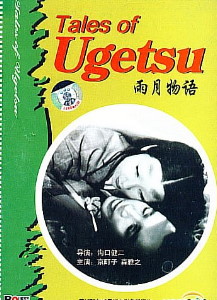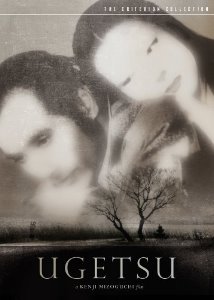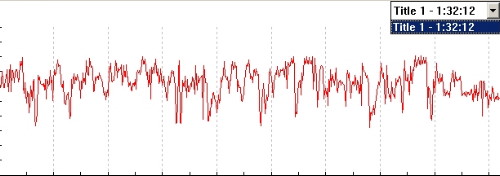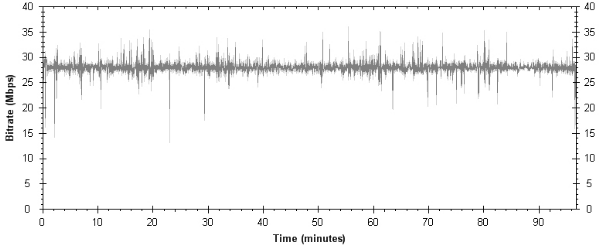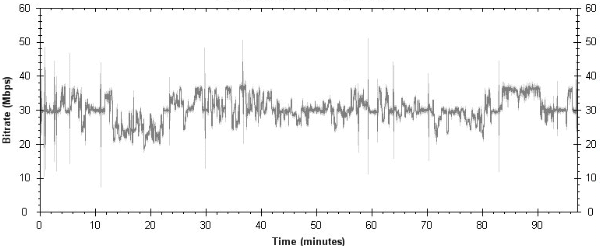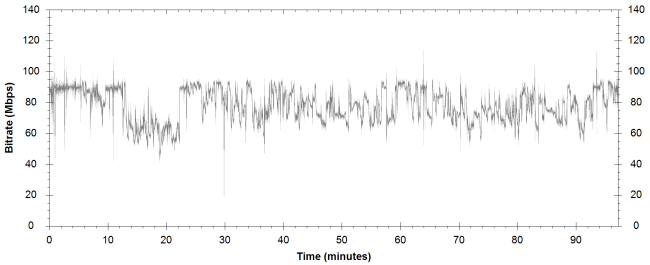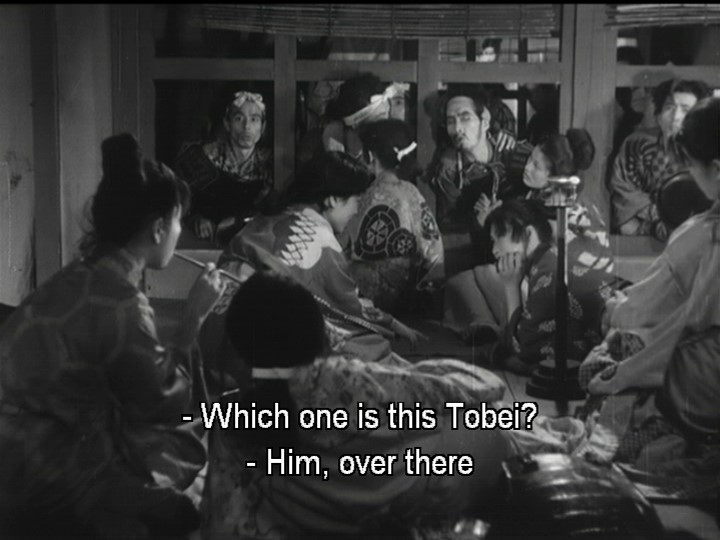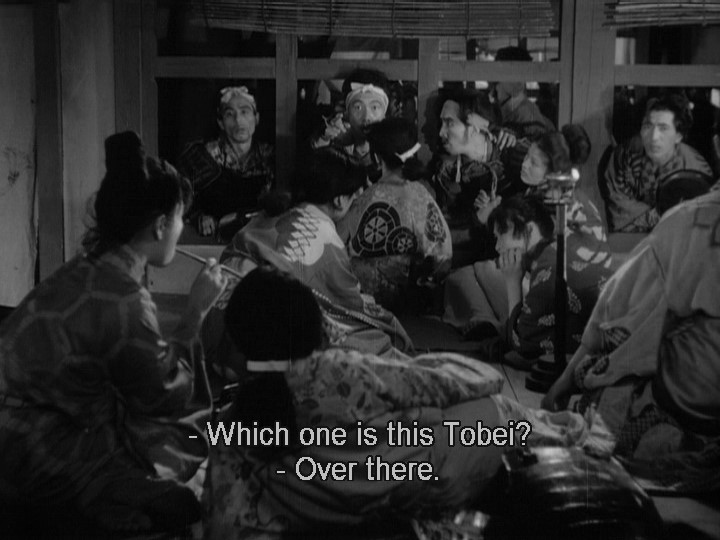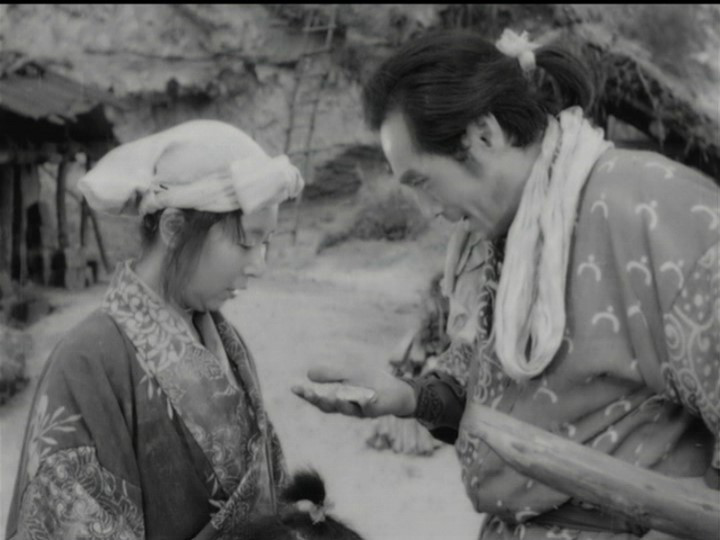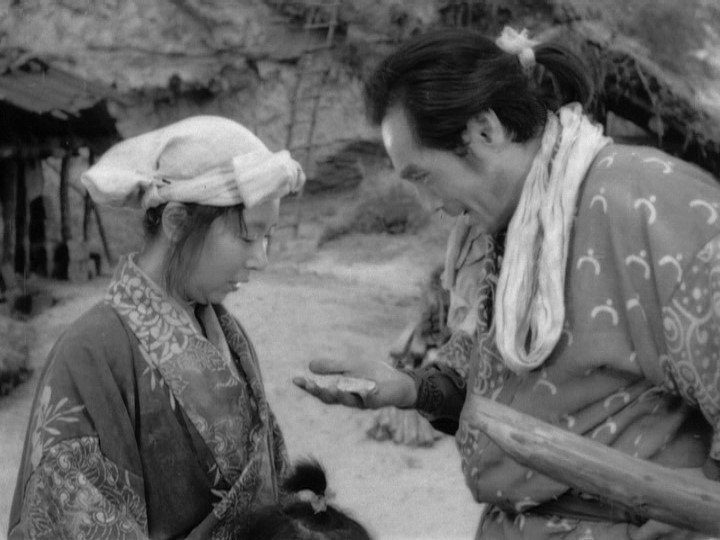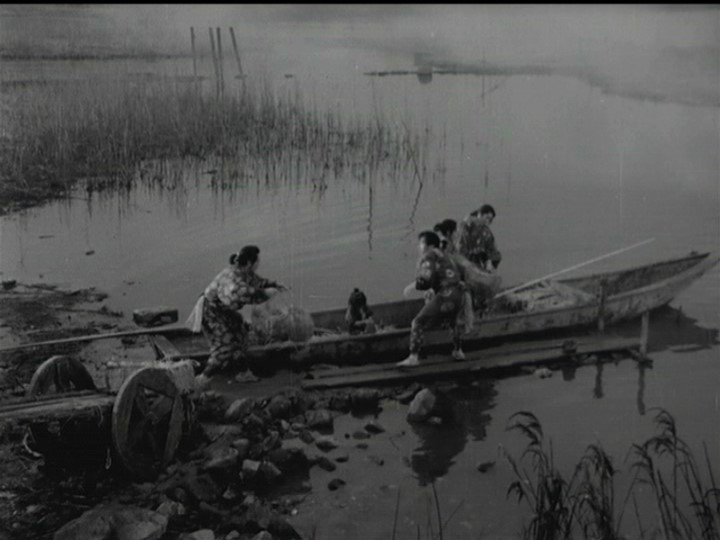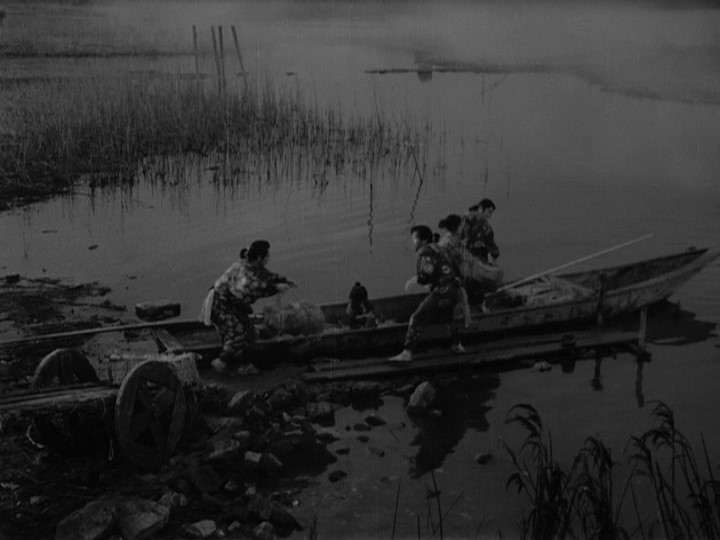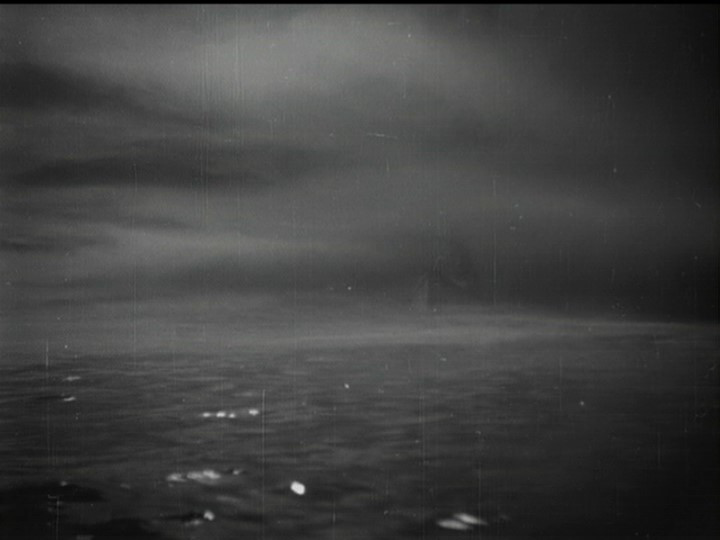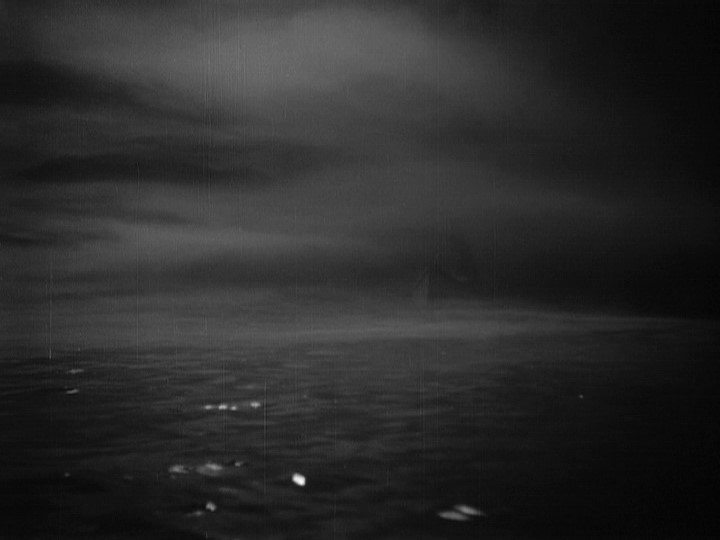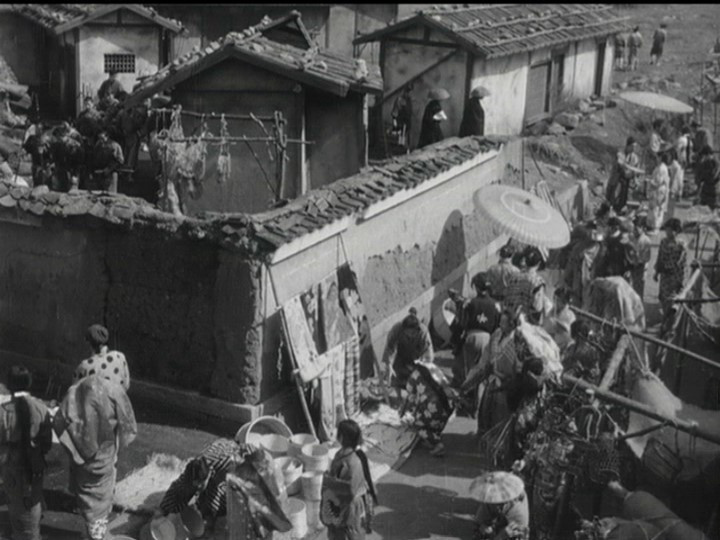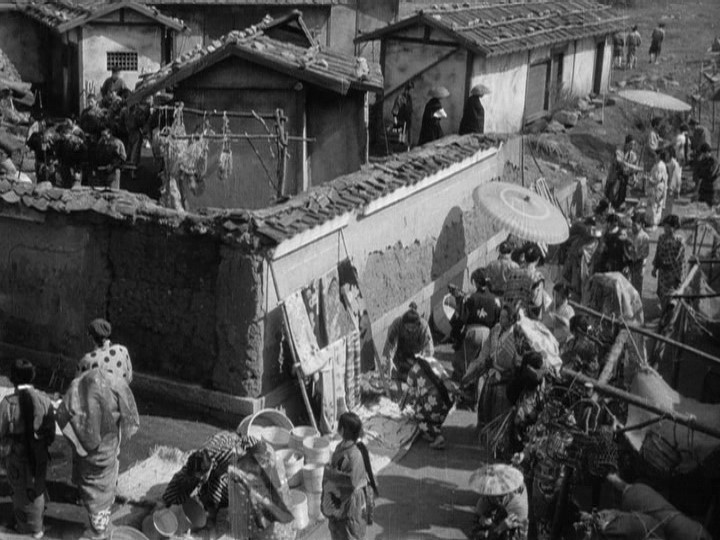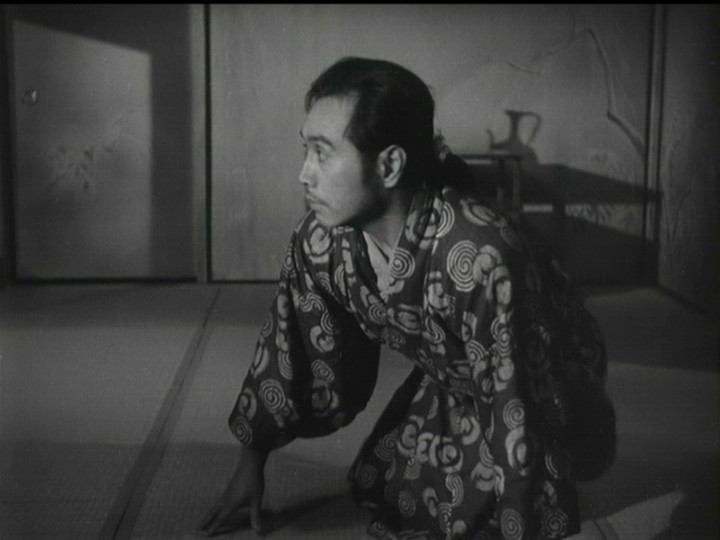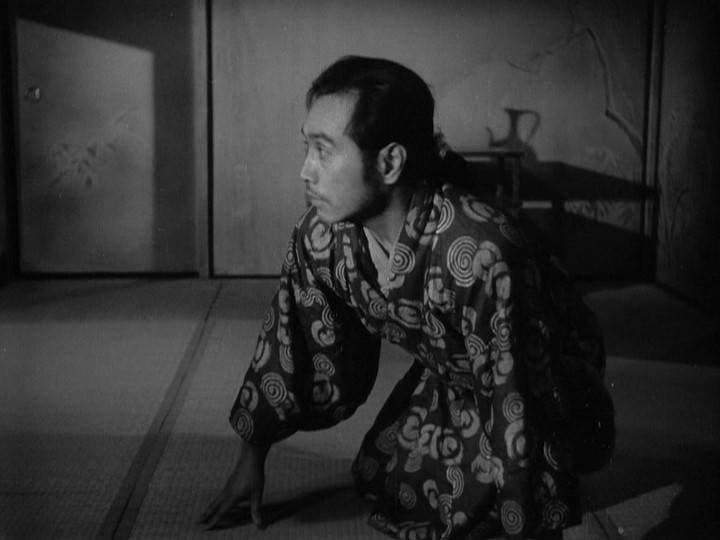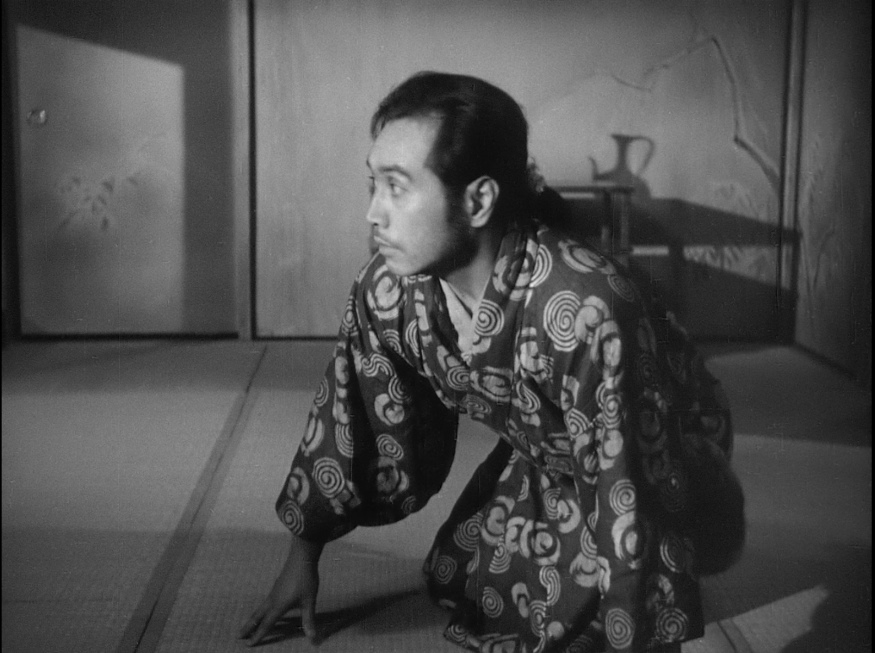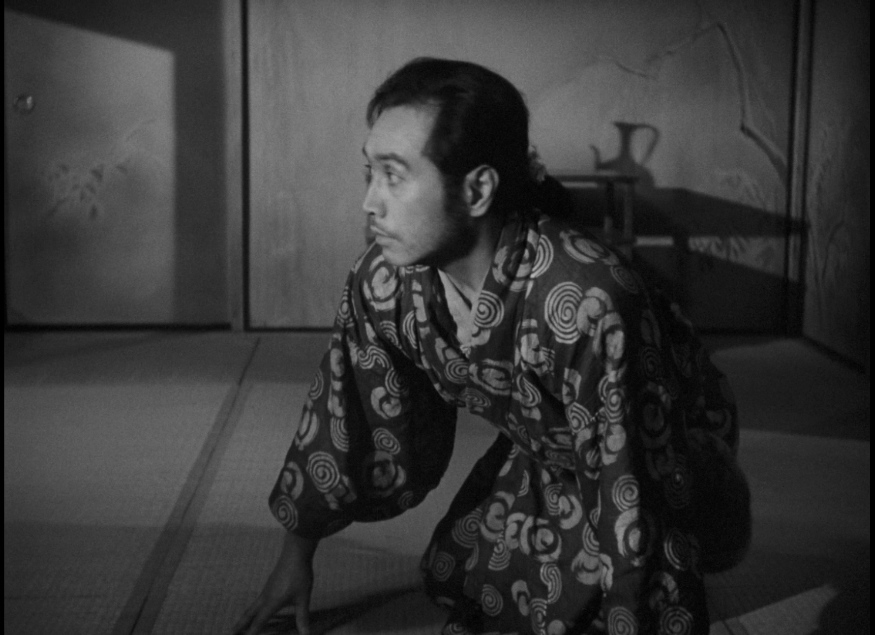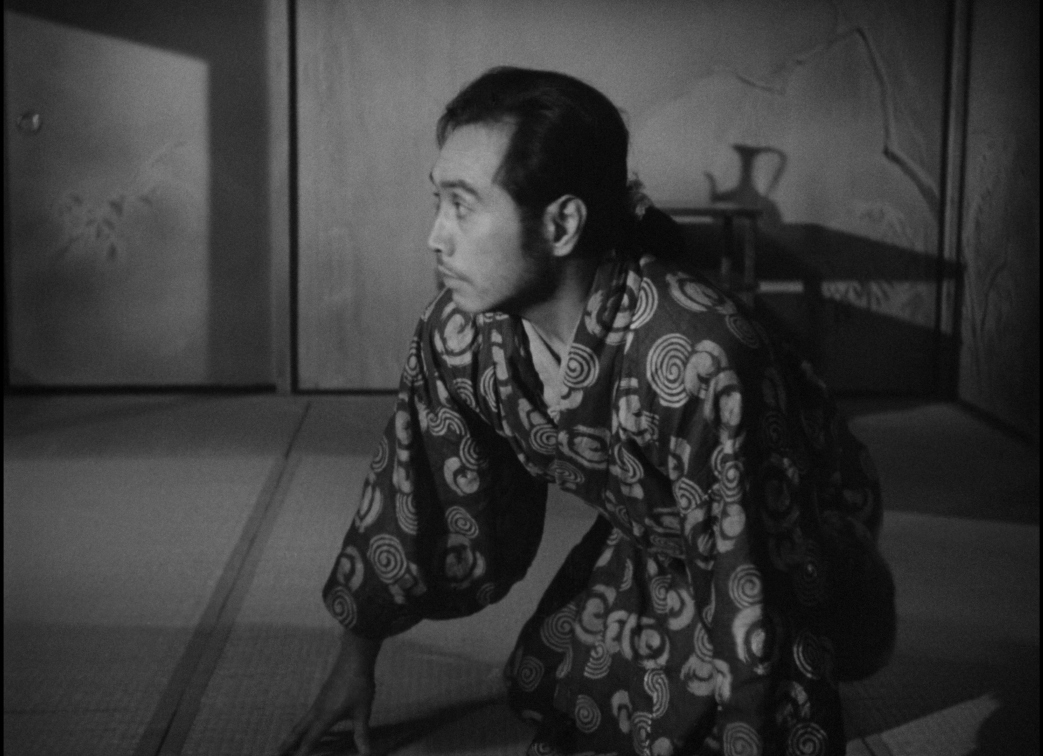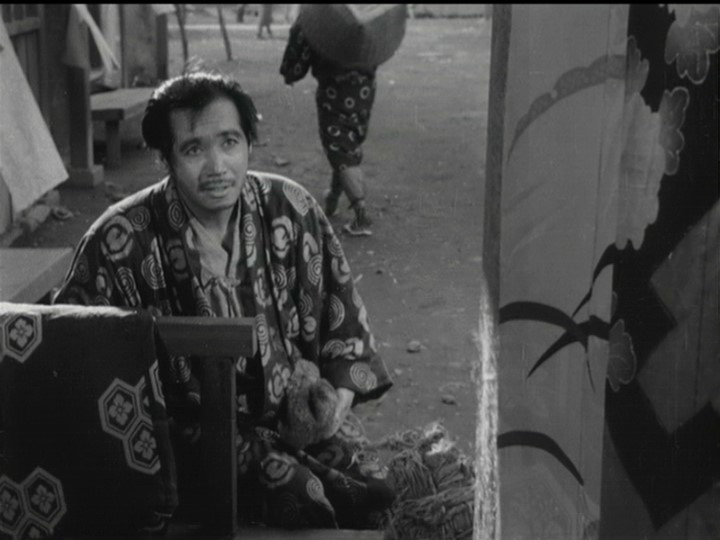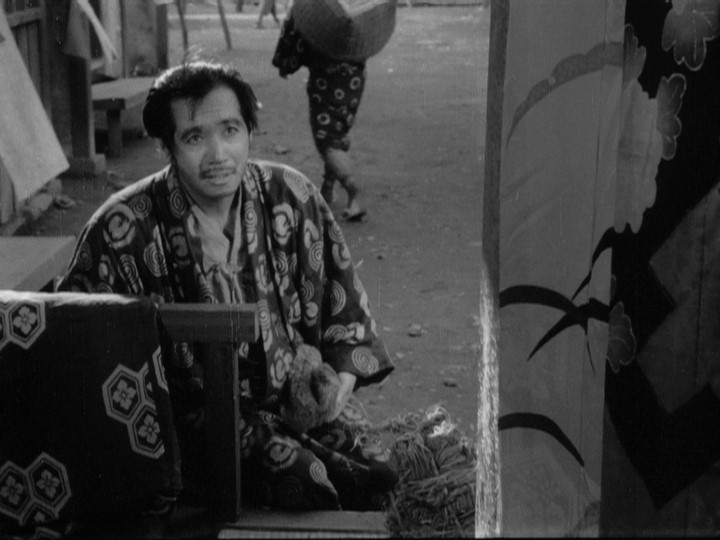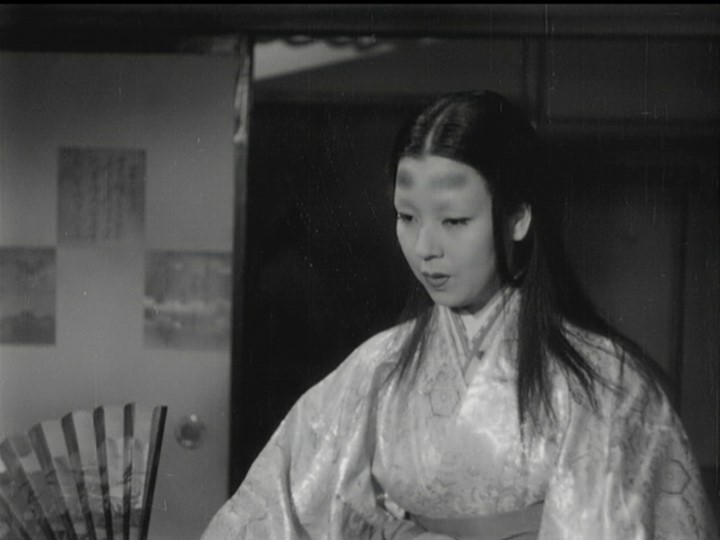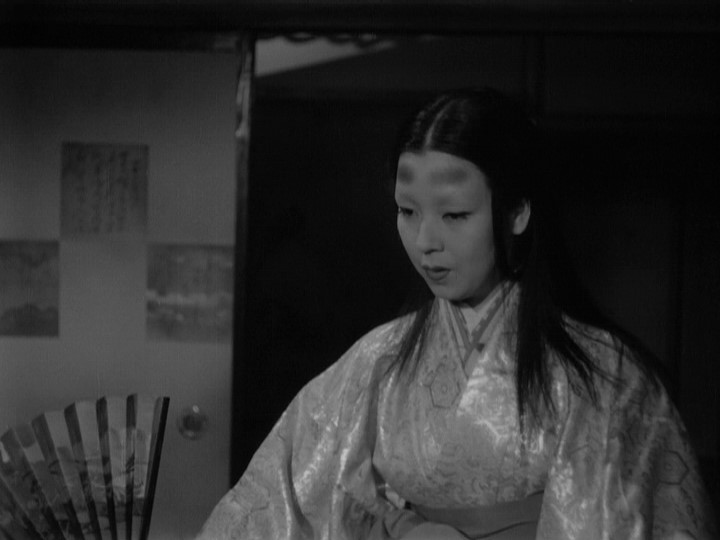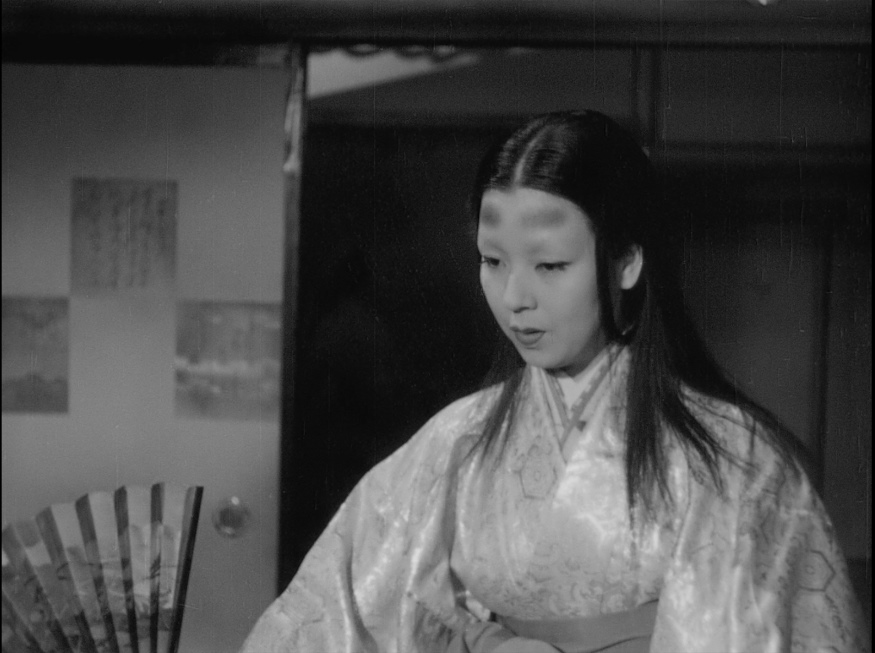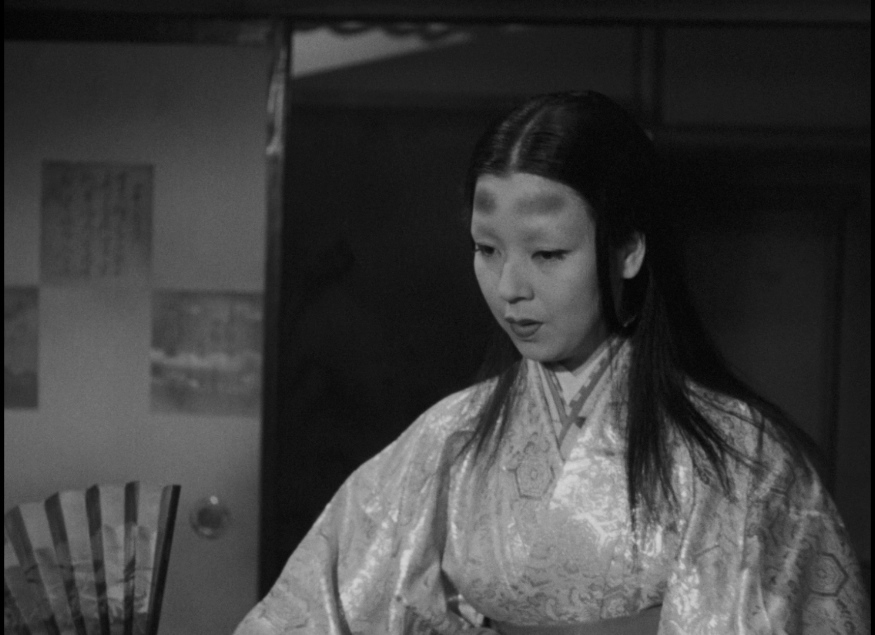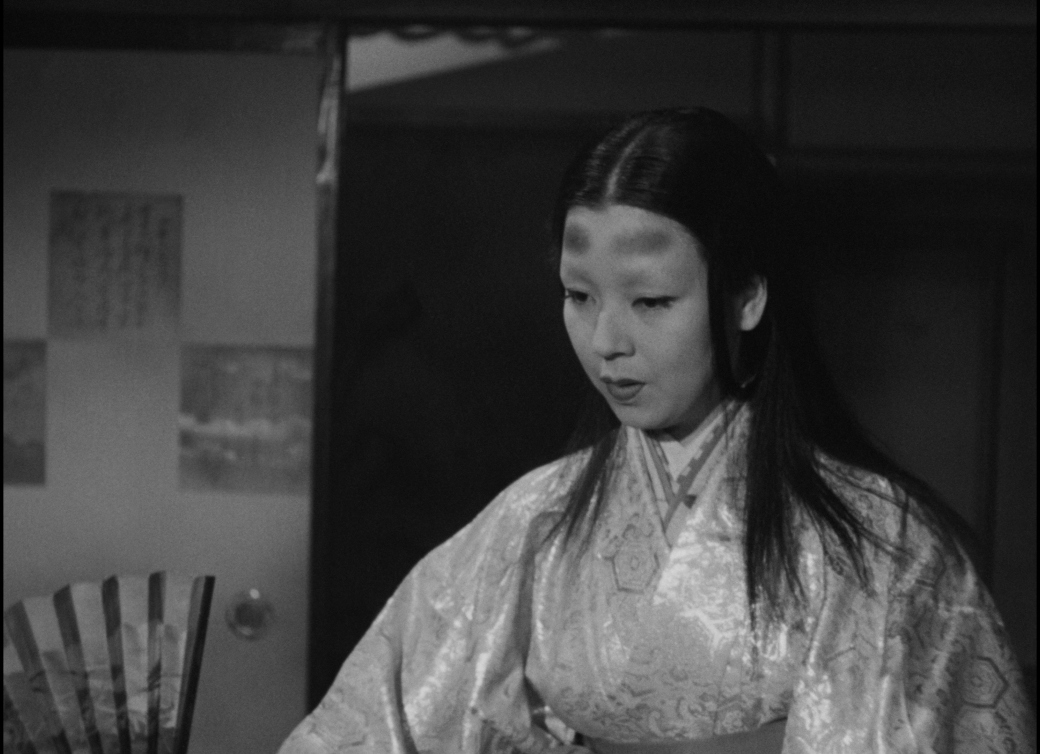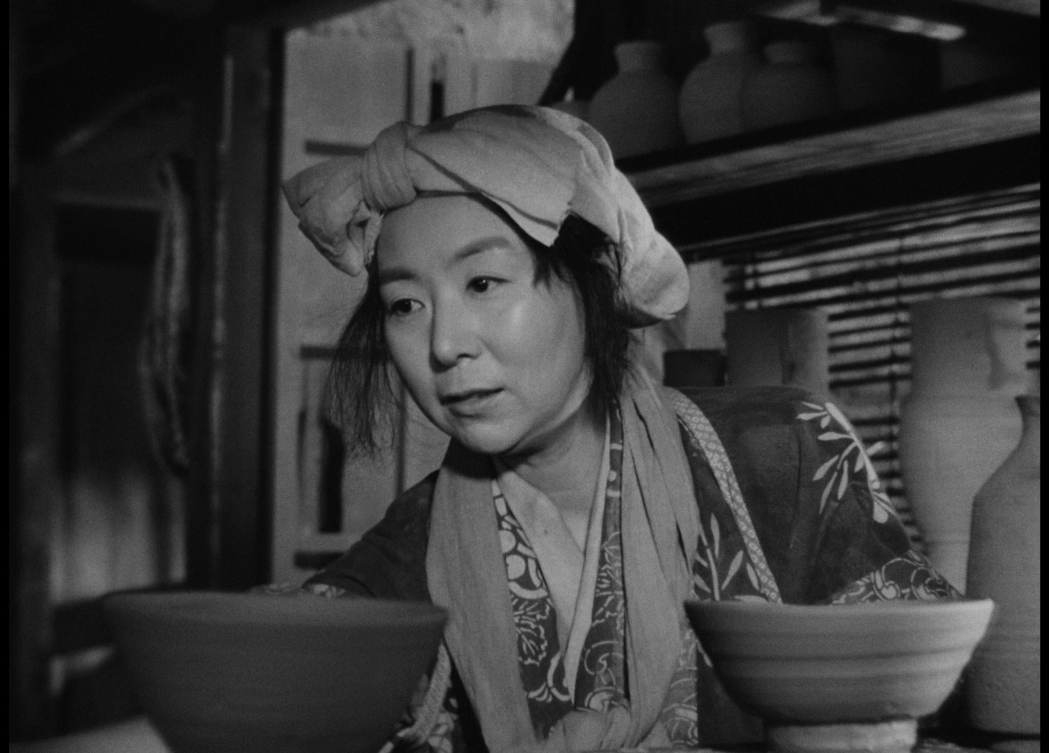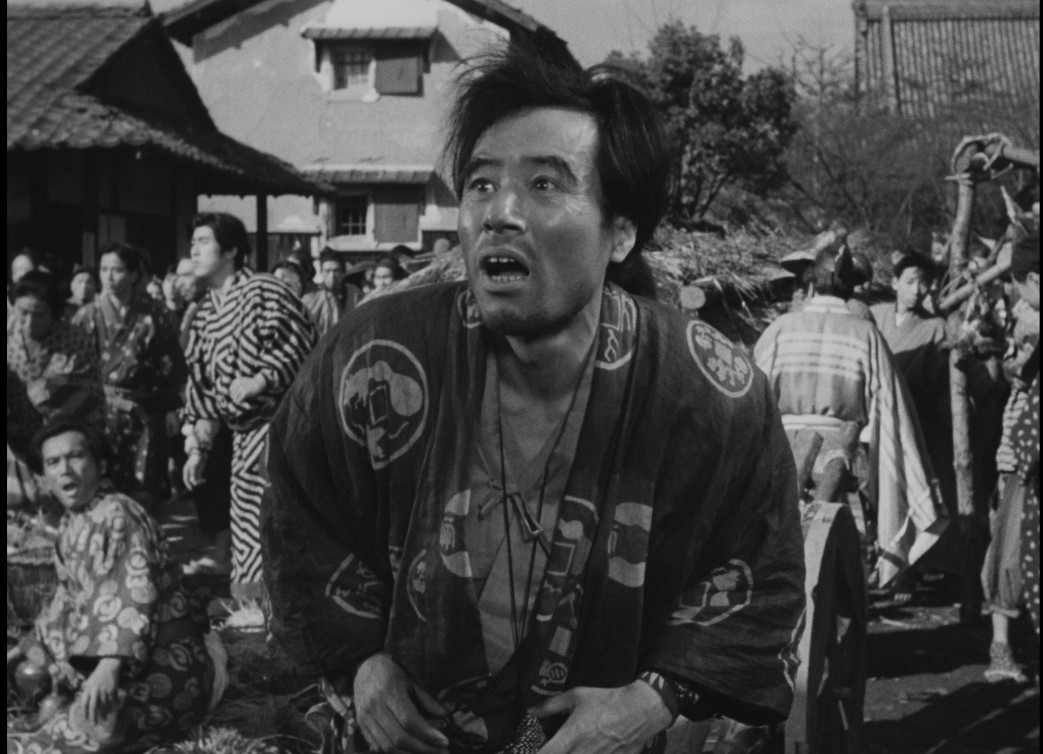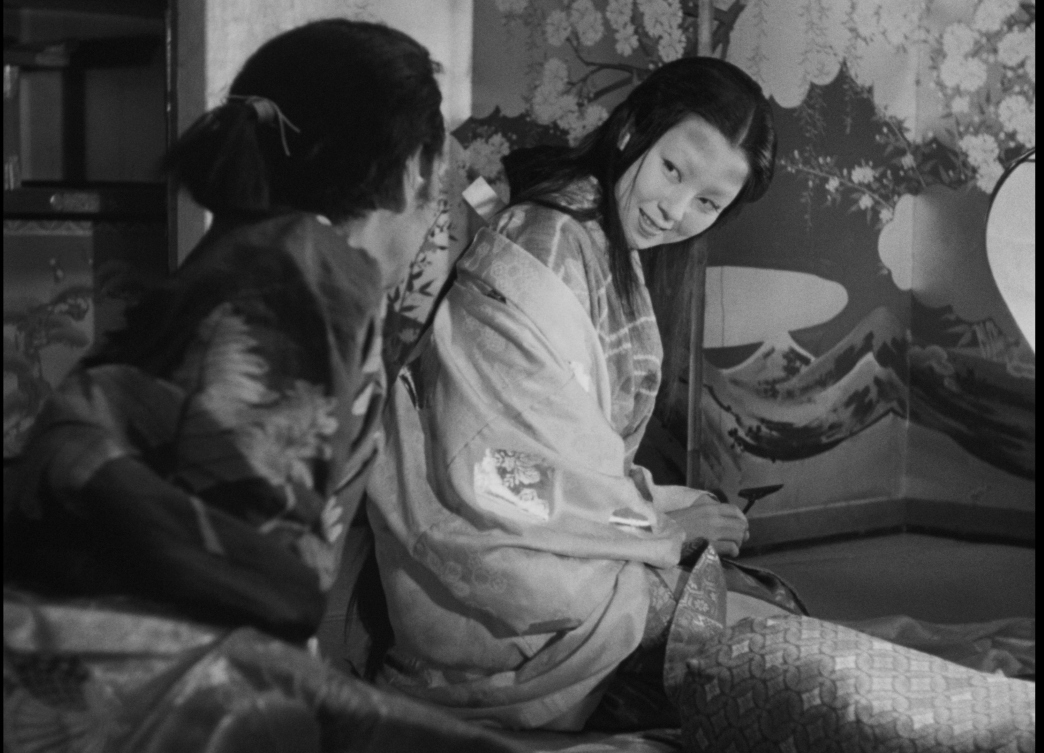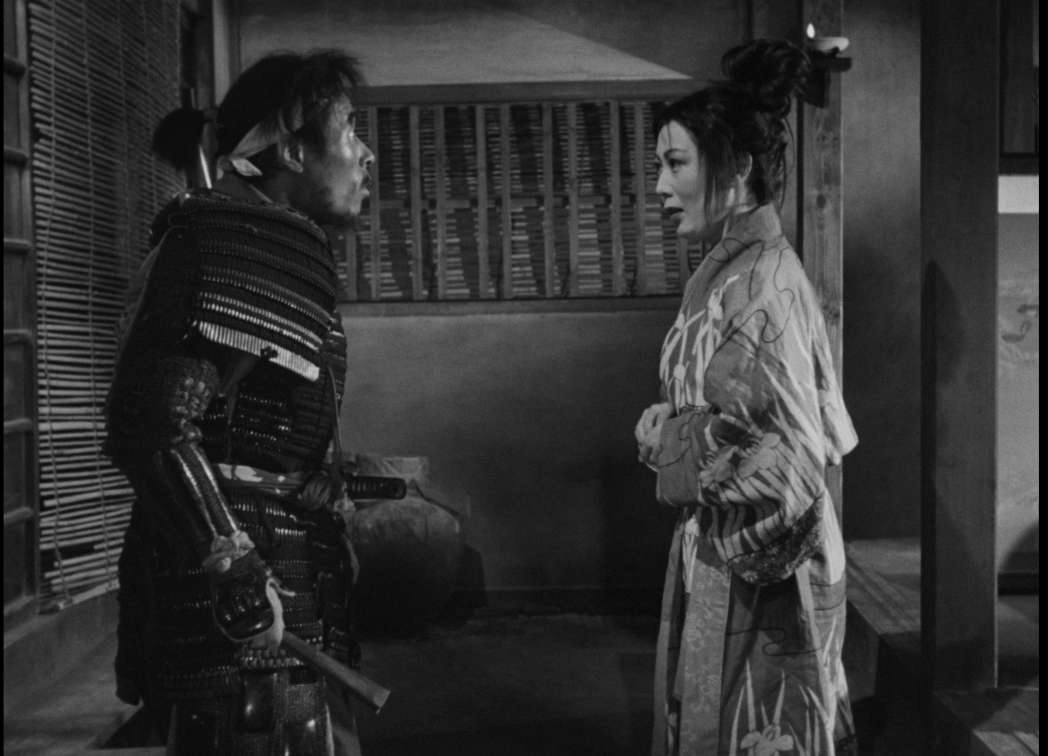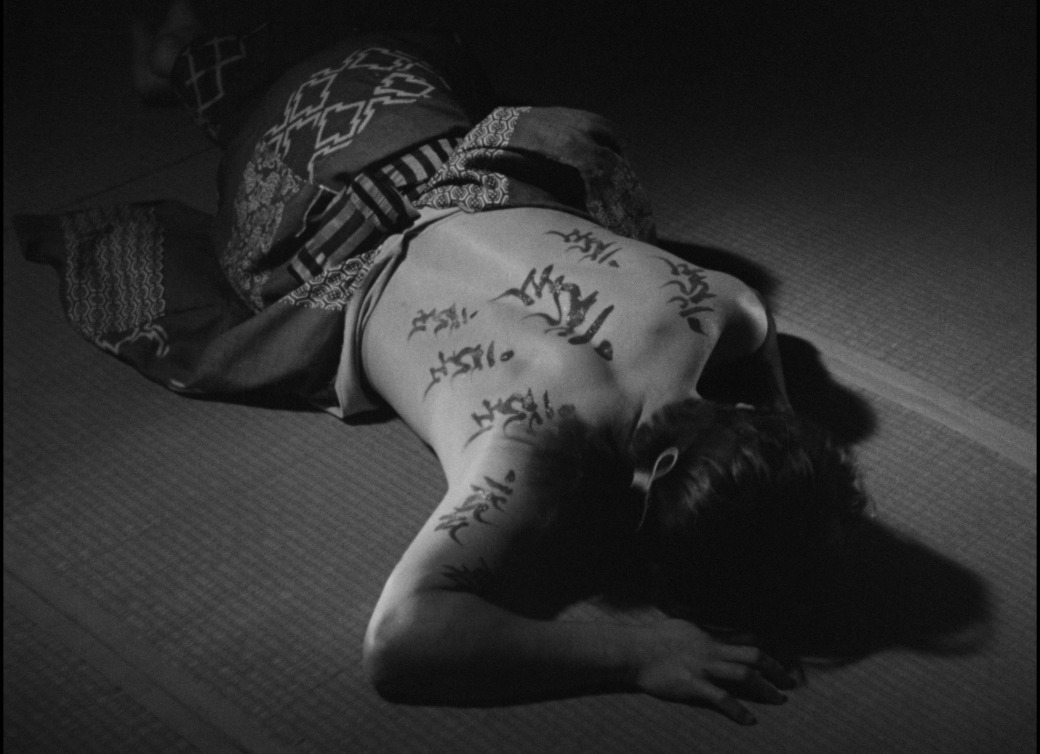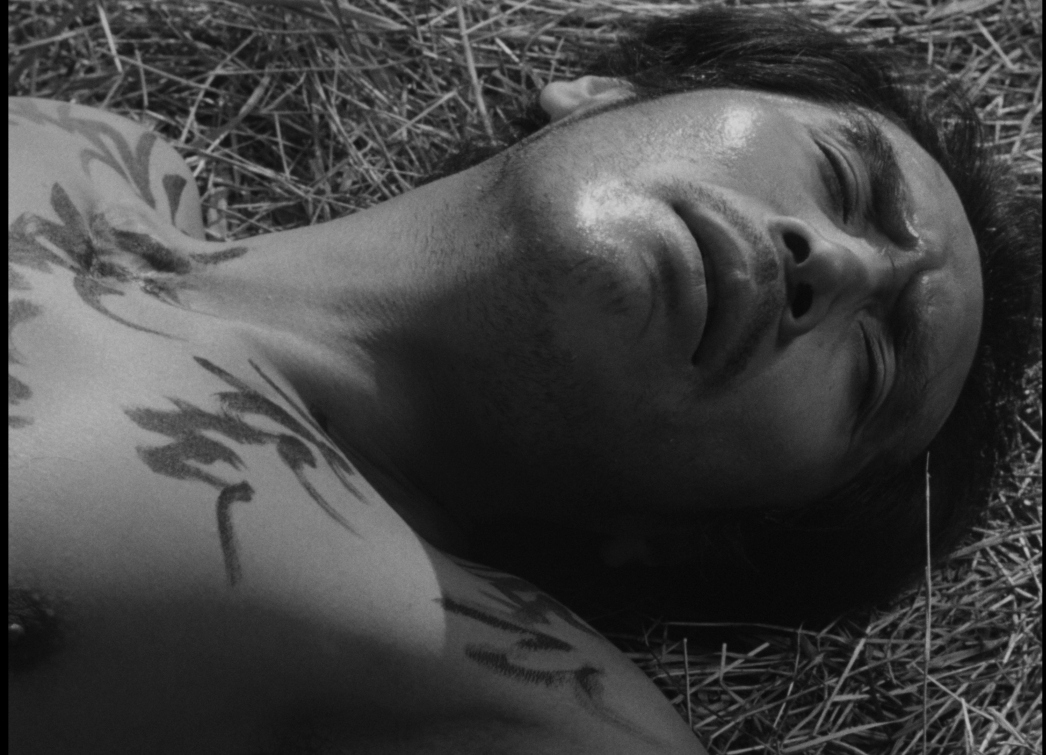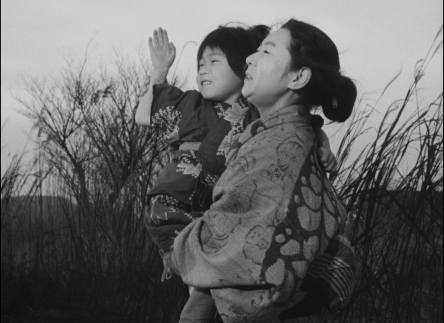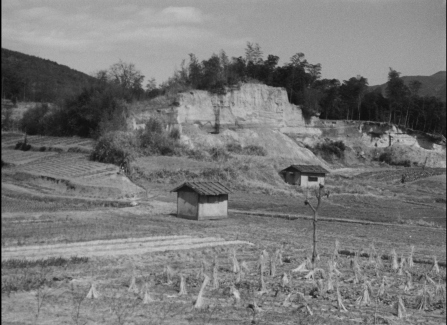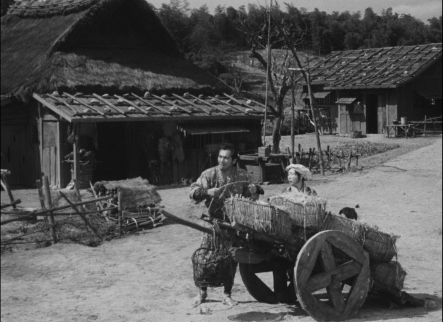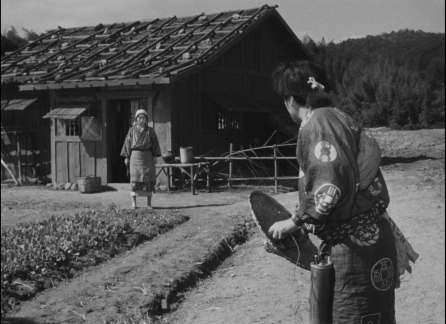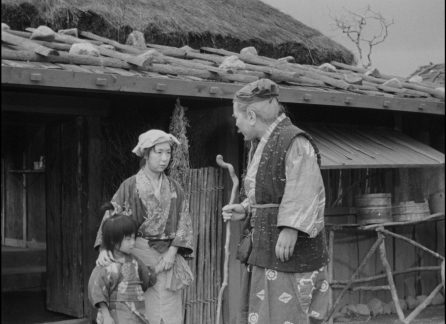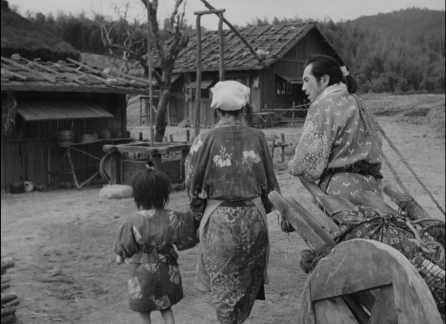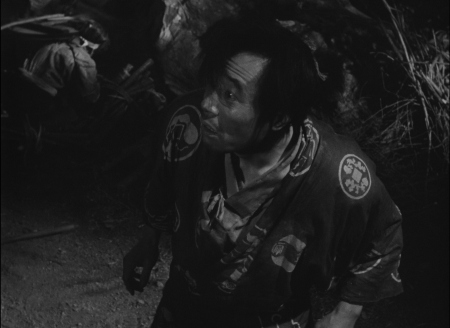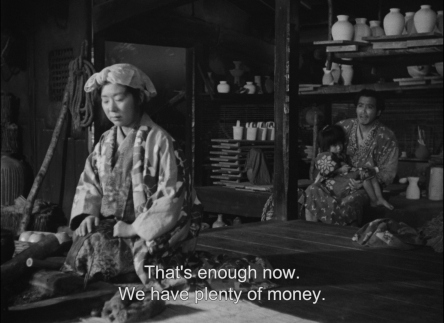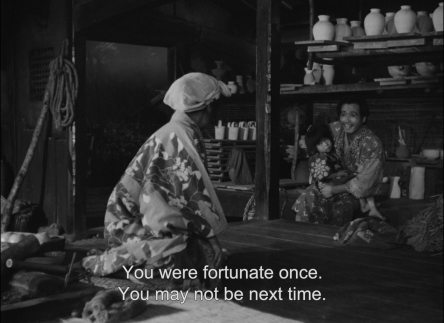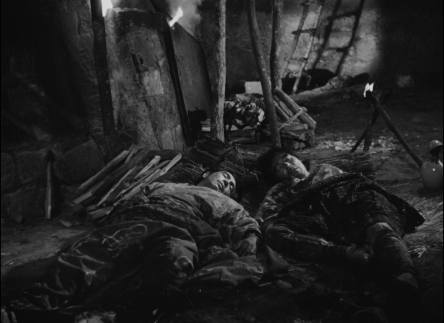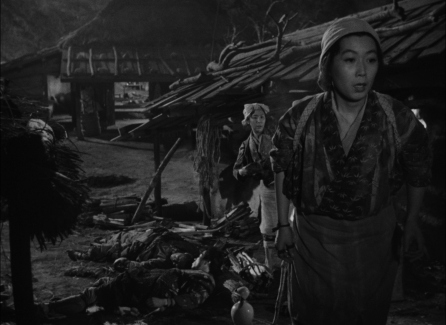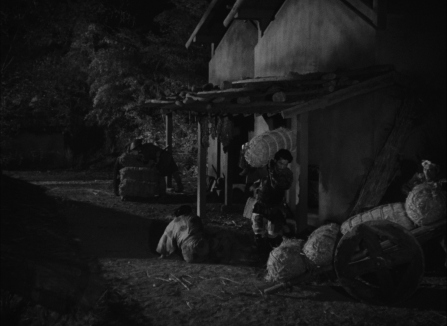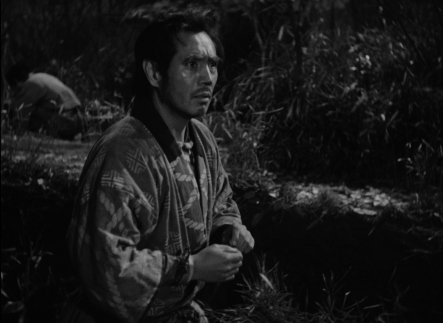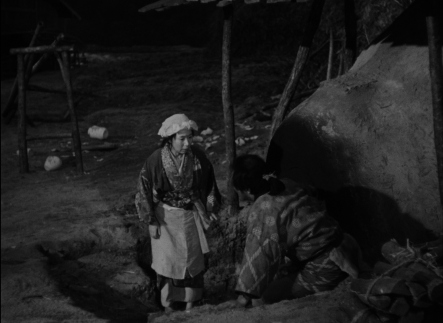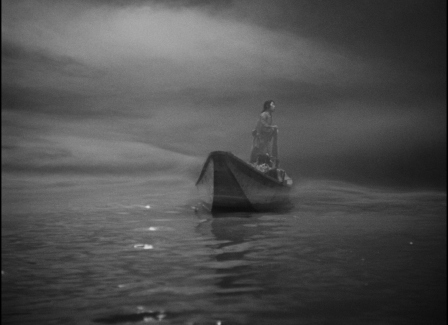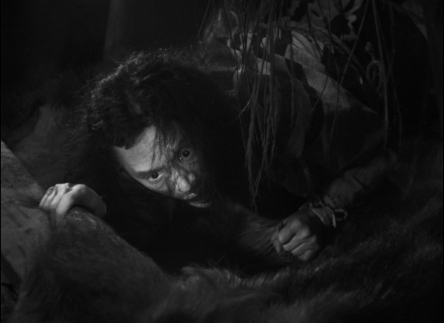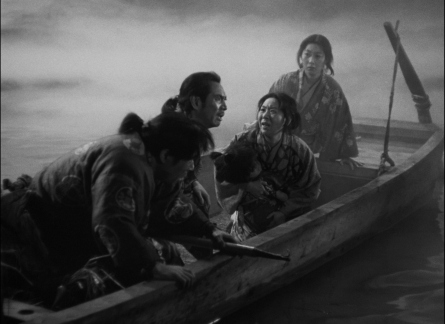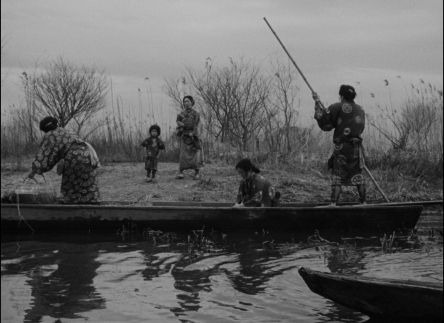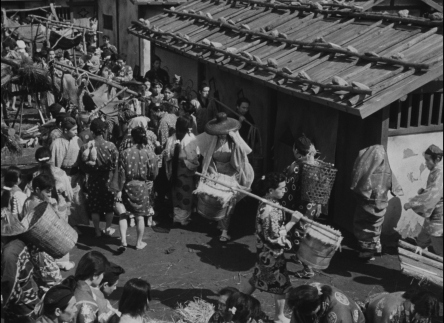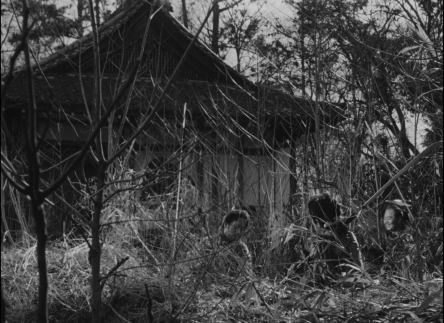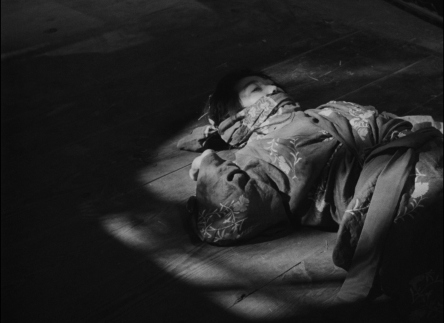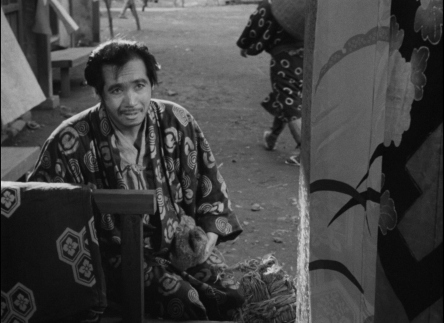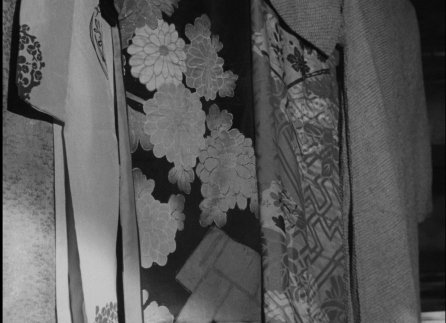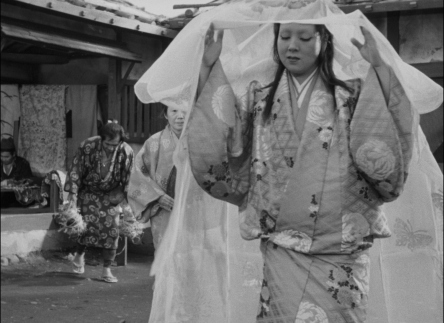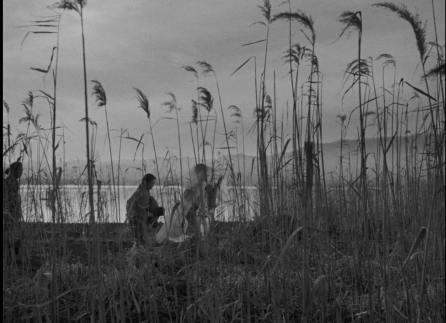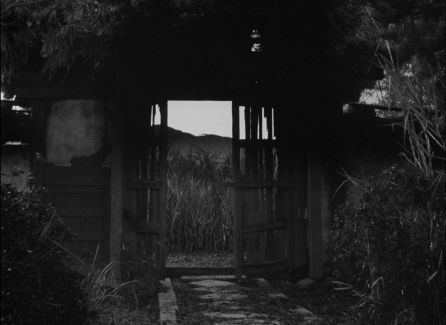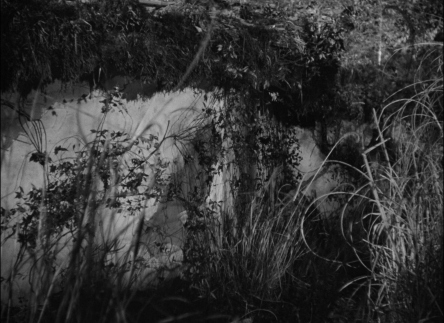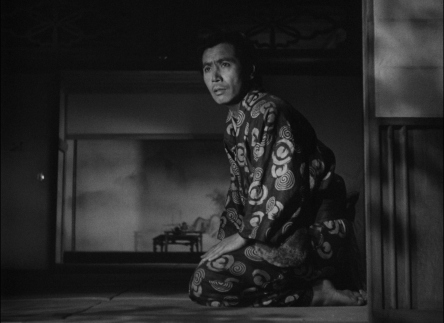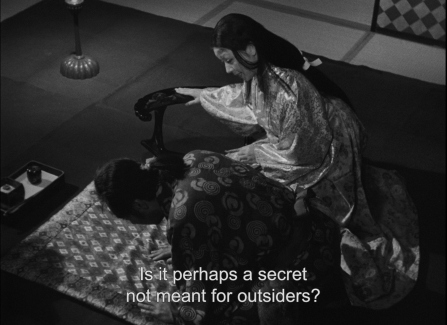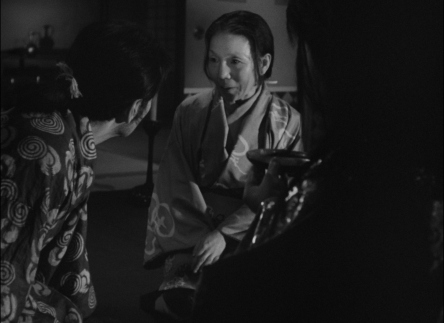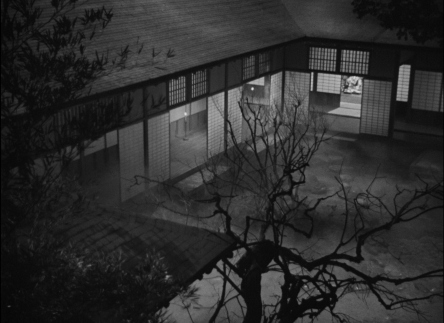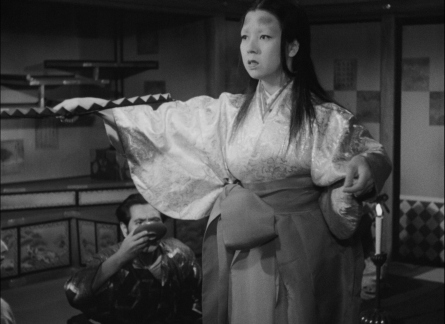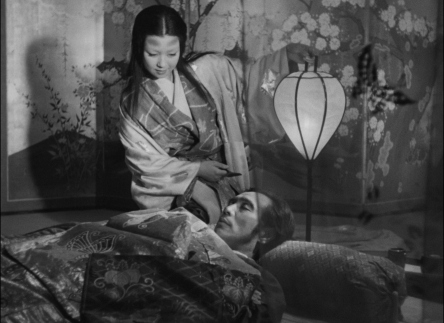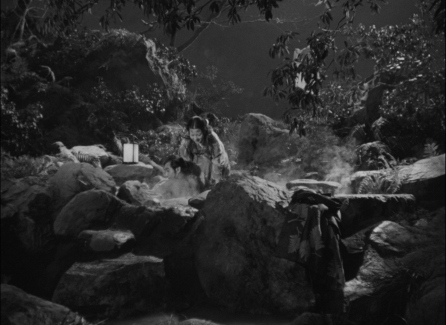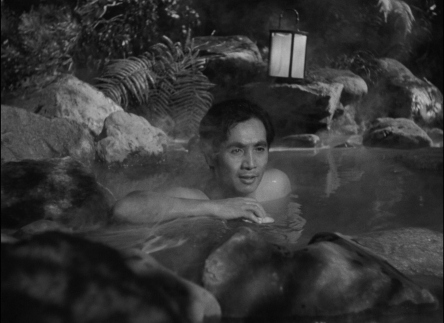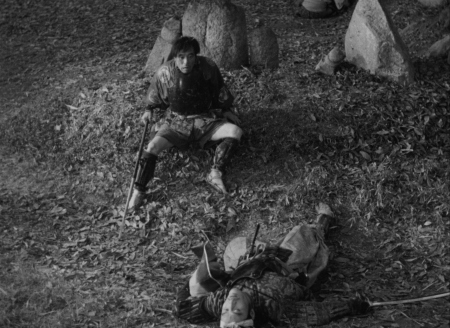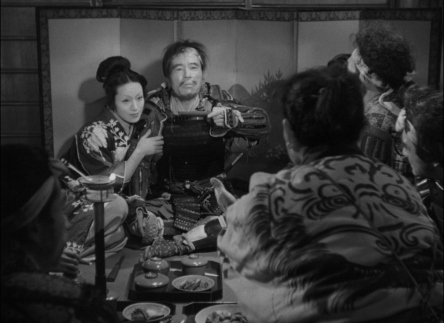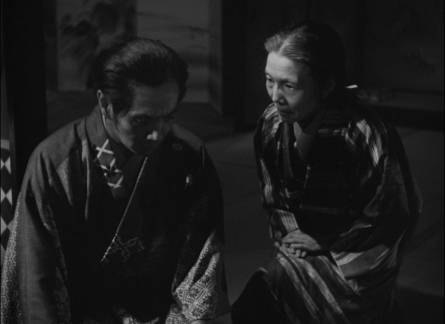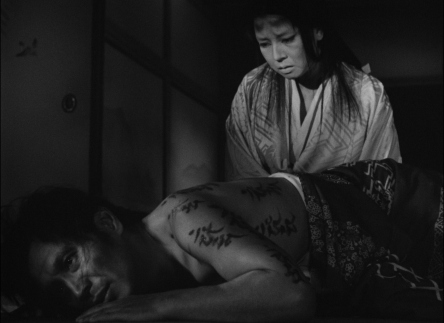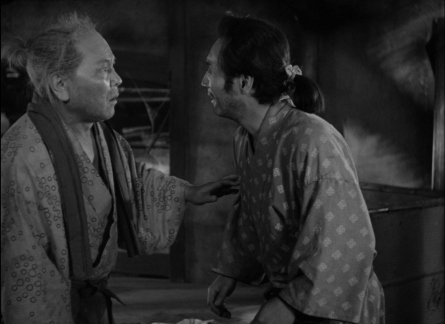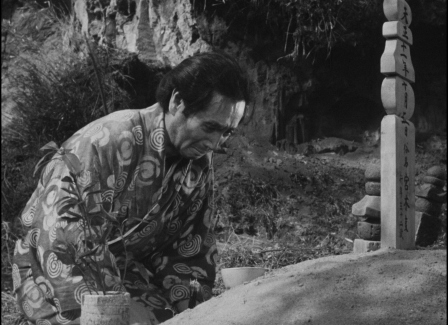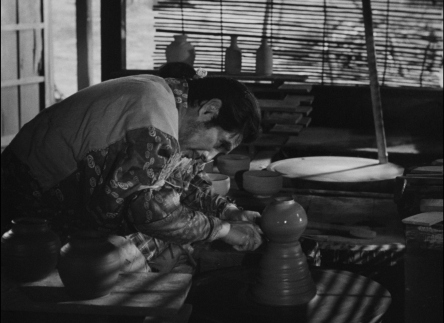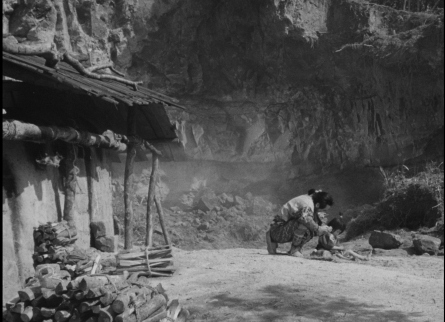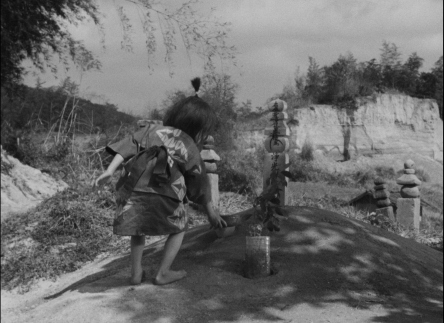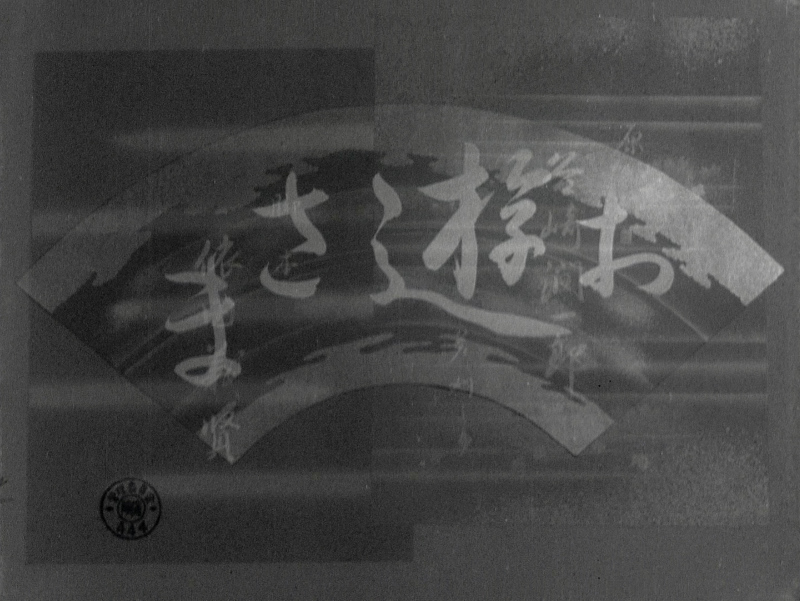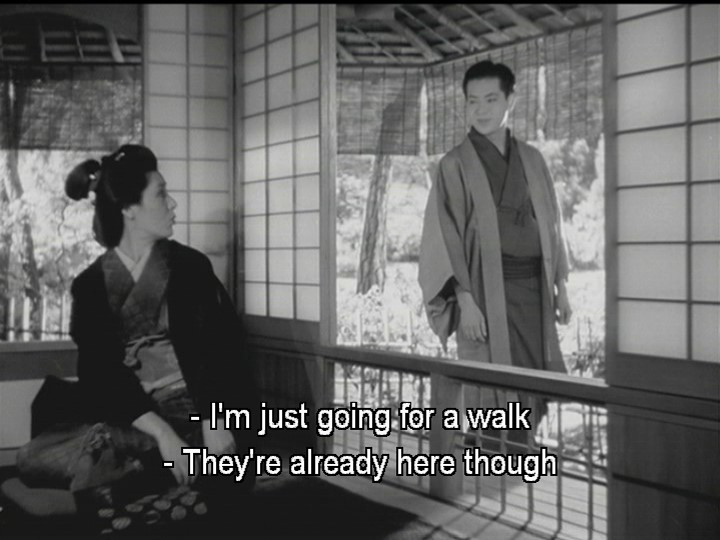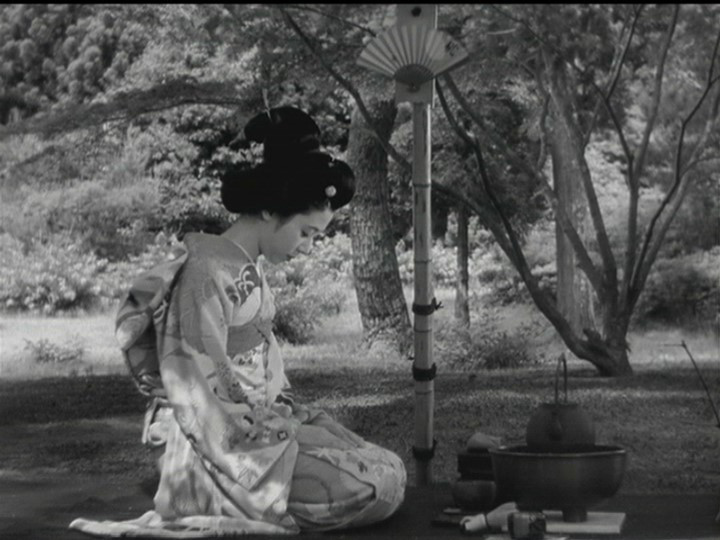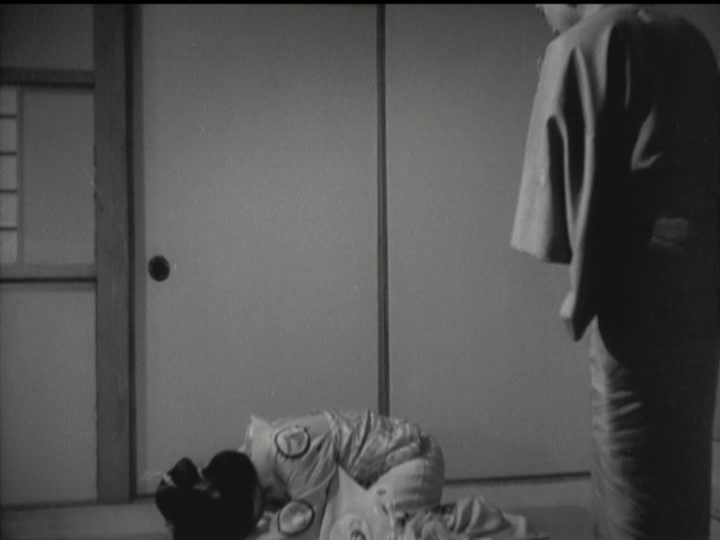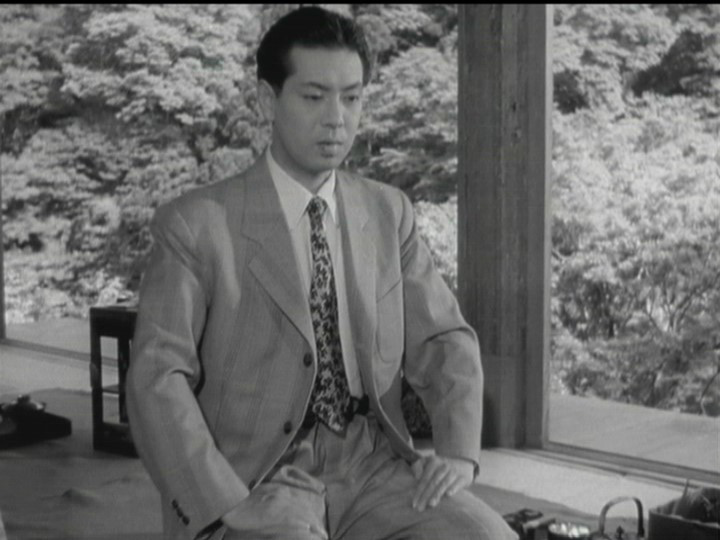|
Firstly, a massive thank you to our Patreon supporters. These supporters have become the single biggest contributing factor to the survival of DVDBeaver. Your assistance is essential to our survival.
What do Patrons receive, that you don't?
1)
Our
weekly
Newsletter
and
Calendar Updates
sent to your Inbox!
Please consider keeping us in existence with a couple of dollars or more each month (your pocket change! / a coffee!) so we can continue to do our best in giving you timely, thorough reviews, calendar updates and detailed comparisons. I am indebted to your generosity. |
![]()
![]()

![]()
![]()
|
Search DVDBeaver |
S E A R C H D V D B e a v e r |
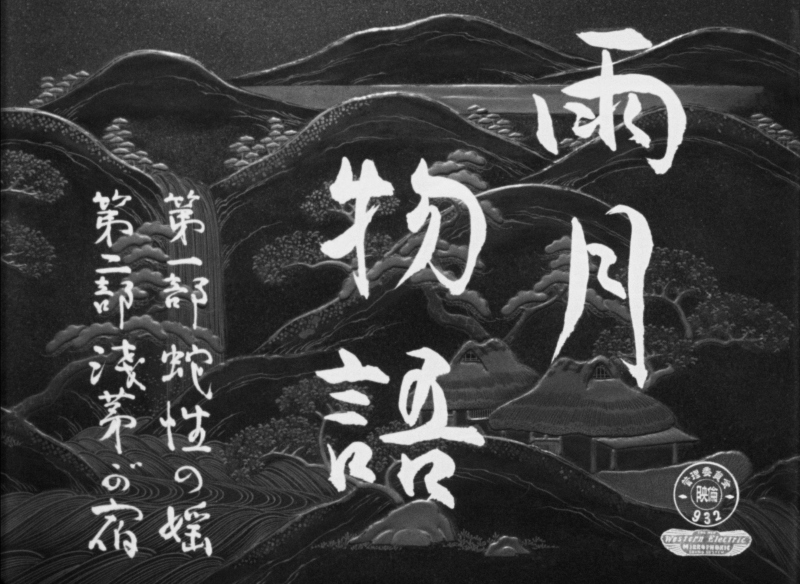
(aka 'Ugetsu monogatari' or 'Tales of Ugetsu' or 'Tales of a Pale and Mysterious Moon After the Rain')
directed by
Kenji
Mizoguchi
Japan 1953
|
The great Japanese director Kenji Mizoguchi draws on sources from both East and West for this, his crowning achievement. Focusing on an ambitious potter haunted by a beautiful ghost and a farmer who dreams of becoming a samurai, Ugetsu offers a commentary on the delusions of lust and power and the folly of war. Renowned cinematographer Kazuo Miyagawa helps Mizoguchi seamlessly interweave the supernatural with reality, creating one of the most beautiful films of all time.
***
"Known to American audiences simply as Ugetsu, this was the film which introduced Mizoguchi to the West. During the civil wars of the 16th century, a potter desperately trying to continue his craft in a war-torn village meets a phantom princess and is lured away to a land of sensual delights. Meanwhile his neighbor, dreaming of military glory, achieves a general's rank for his fraudulent exploits. Eventually, both men are brought down to earth, and they return home to spend the rest of their lives in the fields. But for the women of the tale the lesson has been even more bitter: the potter's wife is murdered by bandits, the samurai's is reduced to prostitution; even the ghost princess, Lady Wakasa, is destroyed by male betrayal. Phantoms and ghosts are evoked in imagic scenes, and fantasy and reality are inseparable, making Mizoguchi's stylistically superb film a powerful study in psychology and an intense tragedy. Ugetsu is evocative of the Buddhist universe of Noh drama, where time is a movement of consciousness, memory is as tangible as the present, and the dead return to voice their grief or longing. Blending a tale of karmic law, a ghost story, and a love story, Mizoguchi also refers to other Japanese art forms such as narrative picture scrolls in his use of perspective and his signature long takes that move us seamlessly from one scene to the next. For, just as his images overflow with life-characters forever running off toward more life outside the frame—so this reality flows into the phantom universe as well. He builds the otherworld entirely out of what he is given in this one: shadows and lighting, decor and texture, and the graceful chicanery of desire."
|
Posters
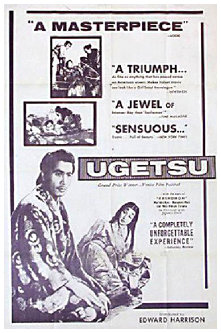 |
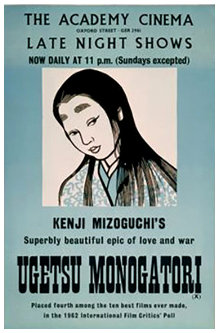 |
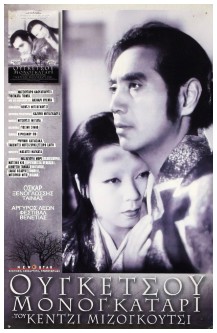 |
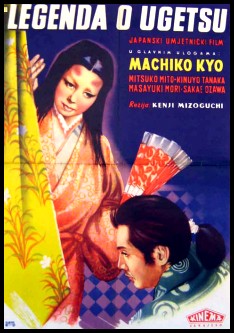 |
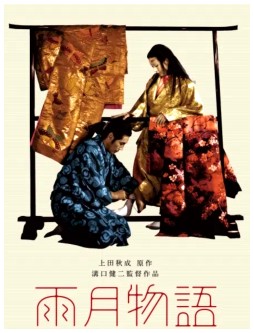 |
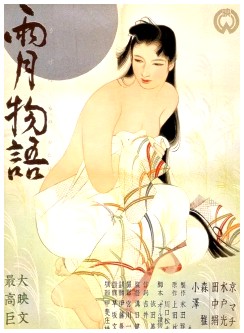 |
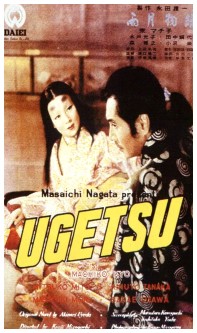 |
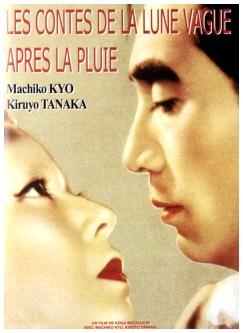 |
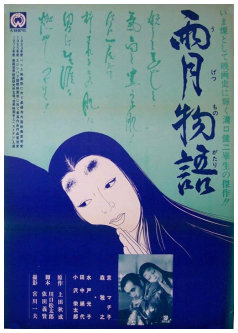 |
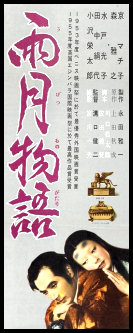 |
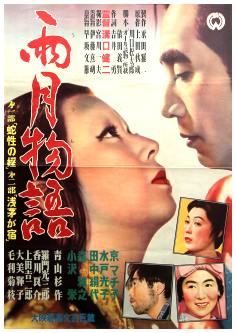 |
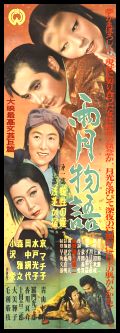 |
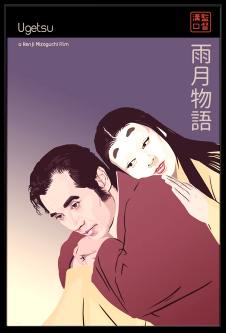 |
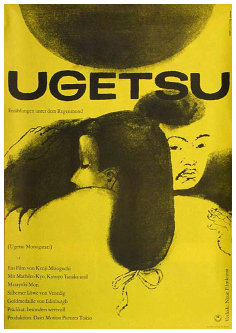 |
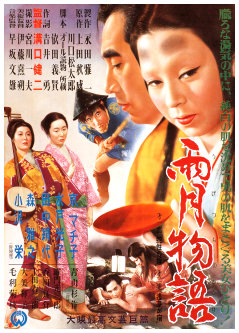 |
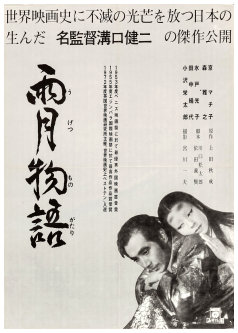 |
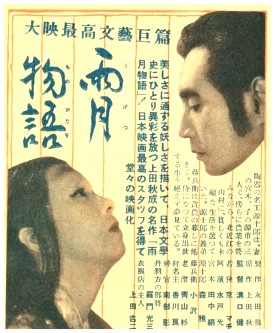 |
Theatrical Release: March 26th, 1953 - Tokyo
Reviews More Reviews DVD Reviews
Comparison:
|
Bo Ying - Region 0 - PAL vs. Eureka - Masters of Cinema (2 disc) - Region 2- NTSC vs. Criterion (2 disc) - Region 1 - NTSC vs. Masters of Cinema - Region 'B' - Blu-ray vs. Criterion - Region 'A' - Blu-ray vs. Criterion - Region FREE - 4K UHD |
| Box Cover |
|
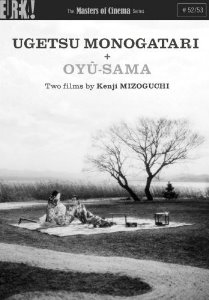 |
|
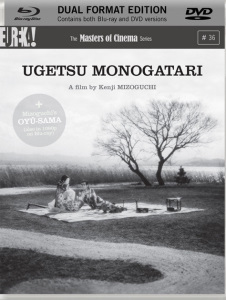 |
Criterion are releasing this Blu-ray in the UK in March 2019: |
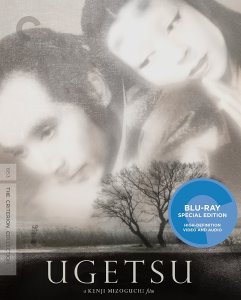
BONUS CAPTURES: |
| Distribution | Bo Ying - Region 0 - PAL |
Eureka (Masters of Cinema) Spine # 52/53 - Region 2 - NTSC |
Criterion Collection - Spine # 309 Region 1 - NTSC |
Eureka (Masters of Cinema) Spine # 36 - Region 'B' - Blu-ray | Criterion Region 'A' - Blu-ray Spine #309 | Criterion Spine #309 - Region FREE - 4K UHD |
|
(click titles for DVDBeaver reviews) Criterion (without any extras) also available in The Essential Art House - 50 Years of Janus Films - a 50-disc celebration of international films collected under the auspices of the groundbreaking theatrical distributor. It contains Alexander Nevsky (1938), Ashes And Diamonds (1958), L'avventura (1960), Ballad Of A Soldier (1959), Beauty And The Beast (1946), Black Orpheus (1959), Brief Encounter (1945), The Fallen Idol (1948), Fires On The Plain (1959), Fists In The Pocket (1965), Floating Weeds (1959), Forbidden Games (1952), The 400 Blows (1959), Grand Illusion (1937), Häxan (1922), Ikiru (1952), The Importance Of Being Earnest (1952), Ivan The Terrible, Part II (1958), Le Jour Se Lève (1939), Jules And Jim (1962), Kind Hearts And Coronets (1949), Knife In The Water (1962), The Lady Vanishes (1938), The Life And Death Of Colonel Blimp (1943), Loves Of A Blonde (1965), M (1931), M. Hulot's Holiday (1953), Miss Julie (1951), Pandora's Box (1929), Pépé Le Moko (1937), Il Posto (1961), Pygmalion (1938), Rashomon (1950), Richard III (1955), The Rules Of The Game (1939), Seven Samurai (1954), The Seventh Seal (1957), The Spirit Of The Beehive (1973), La Strada (1954), Summertime (1955), The Third Man (1949), The 39 Steps (1935), Ugetsu (1953), Umberto D. (1952), The Virgin Spring (1960), Viridiana (1961), The Wages Of Fear (1953), The White Sheik (1952), Wild Strawberries (1957), Three Documentaries By Saul J. Turell plus the hardcover, full color 240-page book. |
||||||
| Runtime | 1:32:12 (4% PAL speedup) | 1:36:51 | 1:36:48 | 1:36:43.756 | 1:37:11.450 | 1:37:10.825 |
| Video | 1.33:1
Original Aspect Ratio Average Bitrate: 6.27 mb/s PAL 720x576 25.00 f/s |
1.33:1
Original Aspect Ratio Average Bitrate: 8.63 mb/s NTSC 720x480 29.97 f/s |
1.33:1
Original Aspect Ratio Average Bitrate: 7.56 mb/s NTSC 720x480 29.97 f/s |
1.33:1 - 1080P Dual-layered Blu-rayDisc Size: 45,010,819,005 bytesFeature: 21,996,122,112 bytes Video Bitrate: 27.99 MbpsCodec: MPEG-4 AVC Video |
1.37:1 - 1080P Dual-layered Blu-rayDisc Size: 48,131,659,146 bytesFeature: 25,047,269,376 bytes Video Bitrate: 30.24 MbpsCodec: MPEG-4 AVC Video |
1.37:1 2160P 4K Ultra HD Disc Size: 65,029,229,710 bytesFeature: 61,427,709,888 bytesVideo Bitrate: 78.09 MbpsCodec: HEVC Video |
|
NOTE: The Vertical axis represents the bits transferred per second. The Horizontal is the time in minutes. |
||||||
| Bitrate:
Bo Ying |
|
|||||
|
Bitrate:
MoC Ugetsu |
|
|||||
|
Bitrate:
MoC Oyu-Sama |
|
|||||
| Bitrate: Criterion |
|
|||||
| Bitrate: MoC Blu-ray |
|
|||||
| Bitrate: Criterion Blu-ray |
|
|||||
| Bitrate: Criterion 4K Ultra HD |
|
|||||
| Audio | Japanese (Dolby Digital 2.0) | Japanese (Dolby Digital mono) | Japanese (Dolby Digital mono) | DTS-HD Master Audio Japanese 830 kbps 2.0 / 48 kHz / 830 kbps / 16-bit (DTS Core: 2.0 / 48 kHz / 512 kbps / 16-bit) |
LPCM Audio Japanese 1152 kbps 1.0 / 48 kHz / 1152 kbps / 24-bit Dolby Digital Audio English 192 kbps 1.0 / 48 kHz / 192 kbps |
LPCM Audio Japanese 1152 kbps 1.0 / 48 kHz / 1152 kbps / 24-bit Dolby Digital Audio English 192 kbps 1.0 / 48 kHz / 192 kbps / DN -31dB |
| Subtitles | English, Chinese (Traditional or Simplified), French, None | English, None | English, None | English, None | English, None | English, None |
| Features |
Release Information: Studio: Bo Ying Aspect Ratio: Original Aspect Ratio 1.33:1 Edition Details: • none |
Release Information: Studio: Eureka Aspect Ratio: Original Aspect Ratio 1.33:1 Edition Details:
• Tony Rayns on Ugetsu (8:20) Disc 2 • Oyu-Sama (1:33:45) • Tony Rayns on Oyu-Sama (12:45)
• 64-page booklet featuring writing by Keiko I. McDonald (author of Mizoguchi and editor of Ugetsu) and award-winning translations of Ueda Akinari’s The Reed-Choked House and A Serpent’s Lust, tales adapted by Mizoguchi in Ugetsu Monogatari.
|
Release Information: Studio: Criterion Aspect Ratio: Original Aspect Ratio 1.33:1 Edition Details:
• Audio commentary by filmmaker, critic, and festival programmer Tony
Rayns
Disc 2 - Kenji Mizoguchi: The Life of a Film Director (1975), a
two-and-a-half-hour documentary by Kaneto Shindo |
Release Information: Studio: Eureka 1.33:1 - 1080P Dual-layered Blu-ray Disc Size: 45,010,819,005 bytesFeature: 21,996,122,112 bytes Video Bitrate: 27.99 MbpsCodec: MPEG-4 AVC Video Edition Details:
• Tony Rayns on Ugetsu (8:20) • Oyu-Sama (1:33:45) • Tony Rayns on Oyu-Sama (12:45)
• 64-page booklet featuring writing by Keiko I. McDonald (author of Mizoguchi and editor of Ugetsu) and award-winning translations of Ueda Akinari’s The Reed-Choked House and A Serpent’s Lust, tales adapted by Mizoguchi in Ugetsu Monogatari.
|
Release Information: Studio: Criterion 1.37:1 - 1080P Dual-layered Blu-rayDisc Size: 48,131,659,146 bytesFeature: 25,047,269,376 bytes Video Bitrate: 30.24 MbpsCodec: MPEG-4 AVC Video Edition Details:
• Audio commentary by filmmaker, critic, and festival programmer Tony
Rayns
• Kenji Mizoguchi: The Life of a Film Director (1975), a
two-and-a-half-hour documentary by Kaneto Shindo (2:29:54) |
Release Information: Studio: Criterion 1.37:1 2160P 4K Ultra HD Disc Size: 65,029,229,710 bytesFeature: 61,427,709,888 bytesVideo Bitrate: 78.09 MbpsCodec: HEVC Video Edition Details: 4K Ultra HD • Audio commentary by filmmaker, critic, and festival programmer Tony Rayns
Blu-ray
• Audio commentary by filmmaker, critic, and festival programmer Tony
Rayns
• Kenji Mizoguchi: The Life of a Film Director (1975), a
two-and-a-half-hour documentary by Kaneto Shindo (2:29:54) |
|
Alt version:
|
This film is also part of the 5 DVD Mizoguchi Boxset, Vol.2 which includes: Les Contes de la lune vague / Miss Oyu / Les Musiciens de Gion / La Rue de la honte / La Vie de O-Haru, femme galante. These issues have no English subtitles but do contain French ones. Purchase link: |
|||||
| Comments: |
NOTE:
The below
Blu-ray
and
4K UHD
captures were taken directly from the respective
discs.
Like 4K UHD transfers of The Long Wait, and I, the Jury, and many others below, Criterion's 2160P transfer of "Ugetsu Monogatari" does not have HDR applied (no HDR10, HDR10+, nor Dolby Vision.) We have seen many other 4K UHD transfers without HDR; Mondo Macabro's Dr. Jekyll and the Werewolf, Cult Film's Django 4K UHD, Umbrella's 4K UHD transfer of Peter Weir's The Last Wave and Criterion's 4K UHD transfers of Winchester 73', The Mother and the Whore, I Am Cuba, The Others, Rules of the Game, Branded to Kill, In the Mood For Love, Night of the Living Dead and, further examples, Masters of Cinema's The Cabinet of Dr. Caligari, and Kino's 4K UHDs of Bob le Flambeur, Last Year at Marienbad, Nostalghia, The Apartment, For a Few Dollars More, A Fistful of Dollars, In the Heat of the Night, The Good, the Bad and the Ugly as well as Koch Media's Neon Demon + one of the 4K UHD transfers of Dario Argento's Suspiria. This non-HDR choice can stem from a preservation of the original aesthetic and/or the source material limitations.The Criterion 4K UHD release of Ugetsu Monogatari offers a pristine 2160P image that elevates an already visually masterful film. The 4K digital restoration, with its improved clarity and detail, enhances Mizoguchi’s long takes, painterly compositions, and symbolic imagery, making the film’s themes of impermanence and human folly even more impactful. It’s a worthwhile investment for those with 4K setups who want to experience Ugetsu in its fullest visual glory. The improved image quality enhances Ugetsu’s visual storytelling, which is central to Mizoguchi’s artistry. This landmark of Japanese cinema has never looked better for home theatre viewing. NOTE: 44 more full resolution (3840 X 2160) 4K UHD captures, in lossless PNG format, for Patrons are available HERE The 4K UHD audio transfer duplicates the 2017 Blu-ray - a linear PCM mono track in the original Japanese (at 24-bit.) The sound design and score of Ugetsu are integral to its haunting, ethereal atmosphere, complementing the film’s visual beauty and deepening its emotional and thematic resonance. Mizoguchi, working with composer Fumio Hayasaka (Stray Dog, Seven Samurai, Rashomon, Ikiru) who served as a musical mentor to Masaru Satō (Kurosawa's High and Low) and Tōru Takemitsu (Shinoda's Pale Flower, Teshigahara's Pitfall.) Additionally there is supplemental music by Taro Takahashi and Ichiro Saito - and sound designer Iwao Otani, who craft an auditory experience that blends traditional Japanese music, naturalistic sound effects, and strategic silences to create a soundscape that feels both timeless and deeply rooted in the film’s historical and cultural context. The sound enhances the narrative’s exploration of war, desire, and the supernatural, while also reflecting Mizoguchi’s interest in tradition in performing arts like noh theater. The film's score is a masterful blend of traditional Japanese music - koto (a stringed instrument), shakuhachi (a bamboo flute), and taiko drums - and Western orchestral elements, creating a sound that is both culturally specific and universally evocative. The sound on the 4K UHD disc is clean evocative. Both discs offer optional English subtitles - and the 4K UHD is region FREE, playable worldwide and the second disc Blu-ray is Region 'A' / 'B'. The Criterion 4K UHD and Blu-ray offer the older commentary by festival programmer Tony Rayns. He provides a scholarly yet accessible analysis of Ugetsu Monogatari. Rayns, a renowned expert on Asian cinema who has written extensively on Japanese film (including for Sight & Sound), offers a detailed, scene-by-scene breakdown of the film, blending historical context, cultural insights, and critical interpretation. Recorded for Criterion’s 2005 DVD release and carried over to the 2017 Blu-ray and 2025 4K UHD editions, this commentary remains a definitive resource for understanding the film. Rayns begins by situating Ugetsu within Mizoguchi’s career, noting that it came at a peak period following The Life of Oharu (1952) and just before Sansho the Bailiff (1954), often considered his greatest works. He discusses Mizoguchi’s “one scene, one shot" philosophy, explaining how the long takes and fluid camera movements reflect the director’s desire to capture the flow of life and emotion in a single, unbroken moment. Rayns also delves into the film’s historical setting - the Azuchi-Momoyama period (1568–1600) - and its parallels to post-World War II Japan, where the devastation of war and the critique of male ambition resonated with audiences in 1953. The commentary remains particularly valuable for its attention to technical details, such as Kazuo Miyagawa’s cinematography and Fumio Hayasaka's score, which Rayns analyzes in the context of their contributions to the film's ethereal atmosphere. He also provides biographical insights into Mizoguchi, discussing how the director’s personal experiences - such as his sister’s struggles as a geisha and his own guilt over her suffering - shaped his empathetic portrayal of female characters. Two Worlds Intertwined by Masahiro Shinoda is the 14-minute video appreciation, by the director Masahiro Shinoda of Double Suicide (1969) and Samurai Spy (1965). Recorded for Criterion in 2005, Shinoda offers a personal and poetic reflection on Ugetsu, focusing on its blending of the real and the supernatural - two worlds that “intertwine" in the film’s narrative and visual style. Shinoda, a key figure in Japan’s New Wave cinema of the 1960s, brings a filmmaker’s perspective to his analysis, emphasizing Mizoguchi’s influence on his own work and on Japanese cinema as a whole. A significant portion of Shinoda’s appreciation focuses on the film’s anti-war message, which he sees as a reflection of Mizoguchi’s experiences during World War II. Process and Production is a 20-minute video interview with Tokuzo Tanaka, who later became a director himself (but known as an assistant director on A Story from Chikamatsu, Sansho the Bailiff , Ugetsu, and Rashomon,), who provides a behind-the-scenes look at the making of Ugetsu, offering valuable insights into Mizoguchi's working methods and the production challenges faced by the crew. Tanaka begins by describing Mizoguchi’s meticulous approach to directing, noting his insistence on authenticity in every detail, from the set design to the actors’ performances. He recounts how Mizoguchi shot much of the film on location near Kyoto, using real villages and natural landscapes to create a sense of historical realism. Tanaka also discusses the challenges of filming the Lake Biwa scenes, where the crew had to contend with unpredictable weather - fog, rain, and wind - that made shooting difficult. Also repeated is the 10-minute video interview with cinematographer Kazuo Miyagawa, recorded in 1995 for a Japanese television program and included in Criterion’s releases since 2005, which offers a firsthand account of the visual artistry behind Ugetsu. Miyagawa, who also shot Rashomon and Yojimbo for Akira Kurosawa, is widely regarded as one of Japan’s greatest cinematographers, and his work on Ugetsu is often cited as a pinnacle of his career. A highlight of the interview is Miyagawa’s discussion of the hot spring scene, where Genjuro and Lady Wakasa share an intimate moment. He explains how he used reflective surfaces - like the water and surrounding reeds - to create a shimmering effect, enhancing the scene’s sensuality while hinting at its supernatural undertones. At nearly two and a half hours, the documentary is a substantial commitment, but it’s a treasure trove for Mizoguchi enthusiasts. The centerpiece of the Criterion supplements is Kenji Mizoguchi: The Life of a Film Director, a two-and-a-half-hour documentary directed by Kaneto Shindo in 1975, a year before Shindo’s death. Shindo, a prolific Japanese filmmaker known for films like Onibaba (1964) and Kuroneko (1968), was a contemporary of Mizoguchi and offers an intimate, comprehensive look at the director’s life and career. The documentary is structured chronologically, tracing Mizoguchi’s journey from his early days in the 1920s, when he directed over 80 films (many of which are now lost), to his later masterpieces in the 1950s, including Ugetsu. Shindo uses a mix of archival footage, film clips, and interviews with Mizoguchi’s collaborators - actors, crew members, and family - to paint a portrait of a complex, driven artist. Key interviewees include actress Kinuyo Tanaka, who played Miyagi in Ugetsu and worked with Mizoguchi on several films, and cinematographer Kazuo Miyagawa, who shares additional insights into their collaboration. There are also theatrical trailers (in Japanese + Spanish.) Lastly is a booklet with original short stories and an essay by Phillip Lopate (My Affair with Art House Cinema: Essays and Reviews.) These are short stories that inspired Ugetsu - Akinari Ueda’s "The House in the Thicket" and "Lust of the Serpent" from his 1776 collection Ugetsu Monogatari, and Guy de Maupassant’s "How He Got the Legion of Honor" - along with a new essay by Lopate. This booklet, a staple of Criterion releases, provides literary and critical context for the film. The Criterion 4K UHD release of Ugetsu Monogatari offers a robust set of supplements that cater to a wide range of interests, from scholarly analysis to behind-the-scenes insights to historical context. While some fans have expressed a desire for new 4K-specific extras, the existing materials are so thorough that they remain highly valuable. Kenji Mizoguchi's "Ugetsu Monogatari" is considered one of the greatest films ever made for its profound thematic depth, visual artistry, and cultural resonance. The film’s structure is episodic, reflecting the storytelling tradition of monogatari (narrative tales), but Mizoguchi unifies the episodes through thematic parallels and a cyclical return to the village, symbolizing a return to humility and familial values after the men’s ill-fated pursuits. The film blends historical realism with supernatural elements, exploring themes of greed, war’s devastation, and the suffering of women, while offering a poignant critique of male pride and societal values in feudal Japan. The Criterion release ensures that Ugetsu is not only preserved in stunning 4K UHD quality, but also contextualized in a way that honors its status as a cinematic masterpiece, making this package a definitive edition for fans and scholars alike. It cannot get anything but our very highest recommendation.
***
ADDITION:
Criterion - Region 'A' -
Blu-ray -
May 17:
Criterion also win in the audio with a linear PCM mono track in the original Japanese - but at 24-bit, as opposed to MoC's 16-bit. The music in the film is credited to Fumio Hayasaka (Seven Samurai, Rashomon, Ikiru), Tamekichi Mochizuki (Sansho the Bailiff, An Actor's Revenge) and Ichirô Saitô (The Life of Oharu, Floating Clouds) and sounds authentically flat and a bit tinny. There are optional English subtitles on Criterion's Region 'A'-locked disc. Extras duplicate Criterion 2-disc DVD package from 2008 with the informative audio commentary by filmmaker, critic, and festival programmer Tony Rayns, a 1/4 hour appreciation of Ugetsu by director Masahiro Shinoda entitled Two Worlds Intertwined, plus 20-minutes of a video interview with Tokuzo Tanaka, first assistant director on Ugetsu, about the making of the film. It is entitled Process and Production. There is a separate 10-minute piece with cinematographer Kazuo Miyagawa. There are trailers in both Japanese and Spanish but the big inclusion is the 2.5 hour, documentary by Kaneto Shindo, Kenji Mizoguchi: The Life of a Film Director from 1975. Criterion have it in 1080P with lossy Dolby audio. The package has a liner notes booklet featuring the original short stories on which the film is based—Akinari Ueda’s “The House in the Thicket" and “Lust of the Serpent" and Guy de Maupassant’s “How He Got the Legion of Honor"—and an essay by critic Phillip Lopate.
The
Criterion is another step up in a/v with the cleaner 4K restoration and
it has the appealing Mizoguchi documentary and other extras. This is
highly important cinema and we give this
Blu-ray
package our highest recommendation! It should be on every cinephile's
shelf... buy with extreme pleasure.
***
On the supplements they have included
Mizoguchi’s Oyu-sama
in 1080P plus the Rayns discussions on both films (see below).
This film always floors me - and it have it in such a
wonderful
Blu-ray
package makes it a true keepsake for the digital library. We rate this 'Essential'.
*** ADDITION:
Masters of Cinema (2-disc) - April 08: The Criterion was prior to their
days of pictureboxing and shows marginal improvement, in the image, over
the new Masters of Cinema Ugetsu Monogatari. This is mostly
apparent in terms of the (boosted) black levels and lighter damage marks. Frankly,
the differences are there but I don't consider them overt. Bottom line
is the Criterion appears slightly cleaner and gives the appearance of
being minutely sharper. The extras for Ugetsu obviously lean
towards Criterion with the Rayns commentary and the 2.5 hour documentary Kenji Mizoguchi: The Life of a Film
Director on their second disc.
Not
unlike the respective
Sansho the Bailiff releases, MoC have gone a different, but very
appreciated, route. They have included another Mizoguchi film - the brilliant 1951
love-triangle melodrama Oyû-sama as part
of their package. It looks very acceptable image-wise with minimal damage
and excellent subtitles (see image captures at very bottom). Along with
both films MoC have included video discussions from the reliable expert
Tony Rayns (about 9 minutes and 13 minutes respectively). As per their
custom - a scholarly book is included (64-pages) - this time featuring
writing by Keiko I. McDonald (author of Mizoguchi and editor of
Ugetsu) and award-winning translations of Ueda Akinari’s The
Reed-Choked House and A Serpent’s Lust, tales adapted by
Mizoguchi in Ugetsu Monogatari. My only complaint would be that
the font is somewhat small (and my eyes are not what they used to be).
It has photos and color posters as the cover. I have enjoyed what I have
read so far.
Personally, I am content
owning both - but if I was forced to choose one I would lean toward the
MoC with the inclusion of
Oyû-sama which I was quite struck
with in my first viewing. For Mizoguchi fans I see no option
but to own both. Ugetsu is too important and the Criterion
package is definitive, but MoC are offering yet another Mizoguchi
masterpiece. It seems only a short time ago my ListServ were lamenting
the lack of Mizoguchi on DVD. It is ecstasy indeed to be a
Japanese cinema fan these past few years. We can see how far we have
come from the analog, bare-bones Bo-Ying of 2004. I, for one, am
immensely appreciative of MoC's fine work in presenting us with these
immortal classics. I'll be buying a second copy (beyond my free
screener) to continue to support their projects. I encourage fans, who
can, to do so as well. NOTE:
The MoC Ugetsu appears to run longer via the bitrate info as
immediately following the 'end' (no credits) is an interlaced trailer.
*** ADDITION: Criterion -
Region 1 - Oct 05: The Criterion includes the 2.5 hour
documentary Kenji Mizoguchi: The Life of a Film
Director on the second disc. We have reviewed the Asmik Ace edition of
the same documentary
HERE. It is great addition to the
Criterion package.
The Bo Ying image has been obviously
boosted and it looks even more prominent next to the stellar Criterion.
The more muted contrast of the Criterion does show its superior
sharpness to a strong degree, but it also has a tendency to make
scratches more visible. Actually I noticed them most at the beginning of
the film (especially the title sequence and credits) and, although there
is some minor flickering after, it settles to be an extremely consistent
and beautiful image thereafter. In an unusual surprise it is the Bo Ying
that suffers from some minor cropping - mostly on the top and left edge.
One of the many big differences between these two presentations are the
vast improvement of the Criterion subtitle translations.
Although I was prepared for a rather
dry commentary - Tony Rayns' audio accompaniment is fabulous - one of
the best I can recall from this year. He touches on the film and a lot
about Mizoguchi - sometimes very intellectual and formal but a wealth of
key information. Great preparation and great delivery.
Pricing - the Boy Ying is only $3.99
US now but, of course, we still recommend the Criterion which somehow
has maintained a relatively reasonable price (Pre-order from Amazon at
$27.97) with a second disc feature and stunning booklet plus better
image, subtitles and extras. A fabulous and classy package from the
great Criterion - an easy must-own purchase for any true cinema fan.
***
Bo
Ying - Region 0 - PAL (2004):
As far as DVDBeaver is aware this is presently the only
English subtitled DVD of this masterpiece film available anywhere in
world. Mizoguchi continues to be the least represented master film
director in this digital medium. In this, regarded as his masterpiece
film, he explores his major themes of oppression of women and the roles
they play in society, the struggling under-class, and avarice.
The DVD appears to be
of a decent source and I am not displeased. It has no ghosting or
combing that I can see and the bitrate indicates it may very well be
progressive. It will, most likely, be
eclipsed one day by a Criterion release. Otherwise this is a
ridiculously reasonably priced DVD from
YesAsia at only $6 and a
must-see film for all. Certainly at this point this is the deal of the
year!
NOTE:
Yes, there are some flaws in the subs ('owen' instead of 'oven' etc.)
and the grammar is quite weak. Just be
prepared to take a little bad with the good for your $3.99. |
MoC Packaging
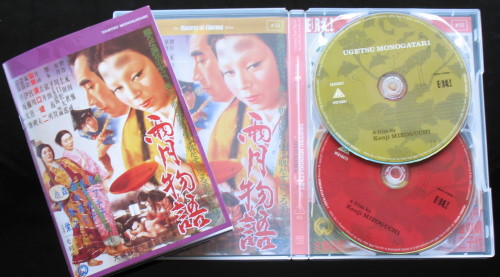 |
Criterion Packaging
(CLICK TO ENLARGE)
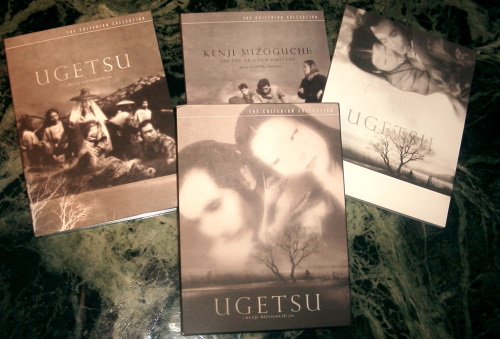 |
Menus
Eureka - Masters of Cinema - Region 2 - NTSC
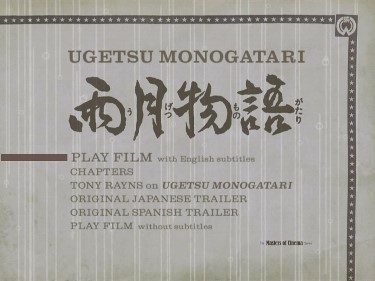 |
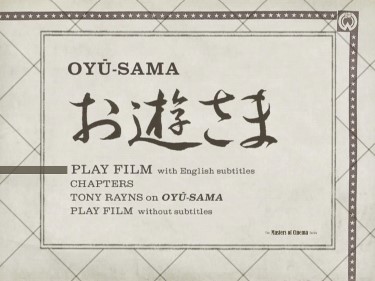 |
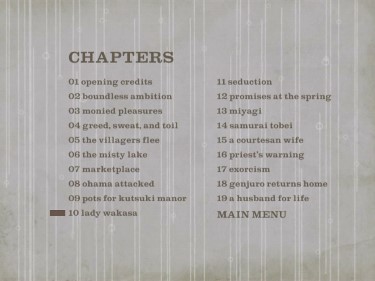 |
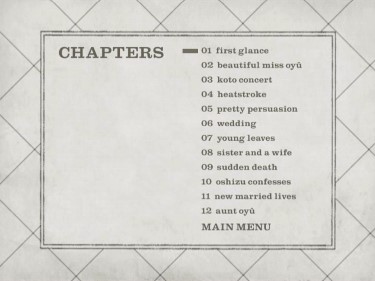 |
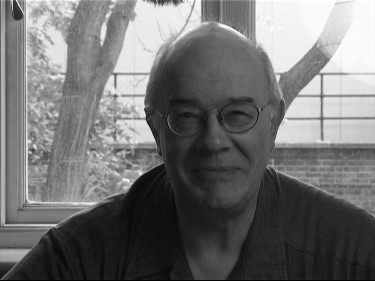 |
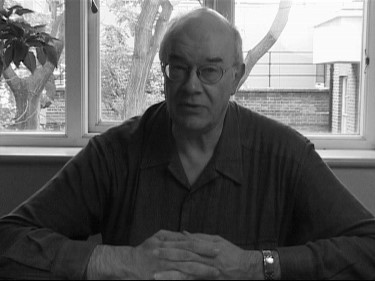 |
(Bo Ying - Region 0 - PAL LEFT vs. Criterion - images from the 2nd disc Kenji Mizoguchi: The Life of a Film Director - RIGHT)
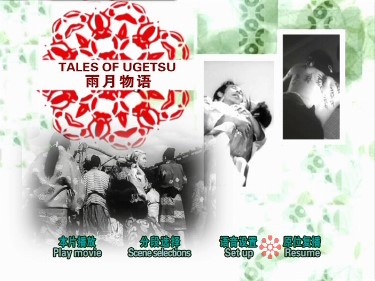 |
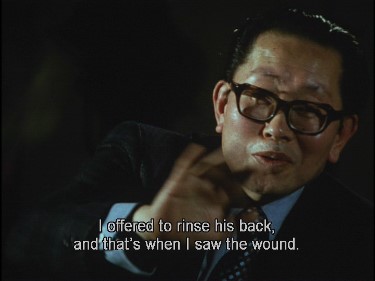 |
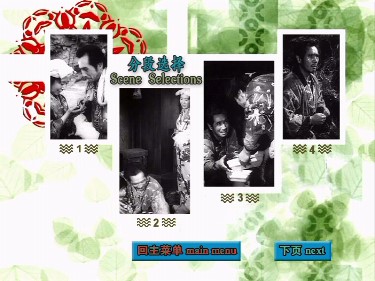 |
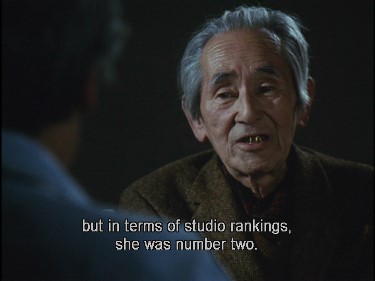 |
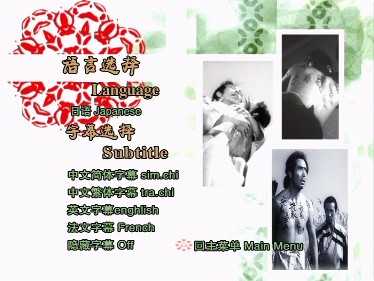 |
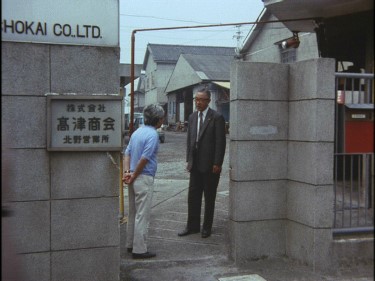 |
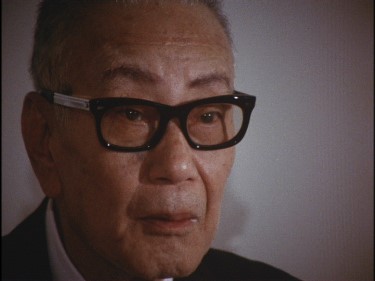 |
Eureka - Masters of Cinema - Blu-ray
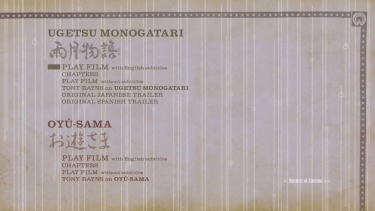 |
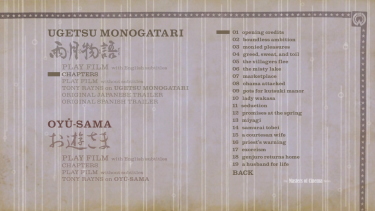 |
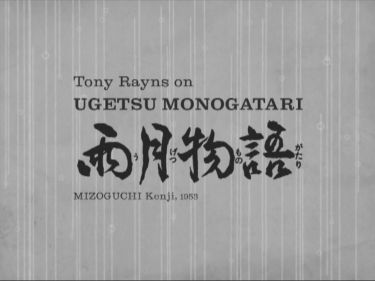 |
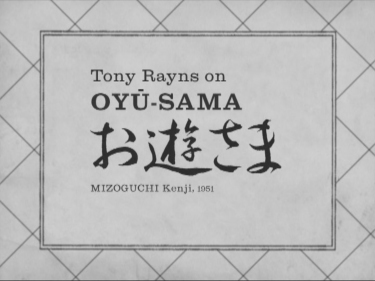 |
 |
 |
Criterion - Region 'A' - Blu-ray
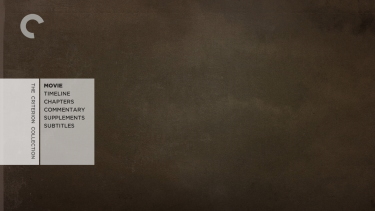 |
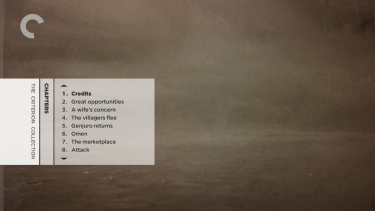 |
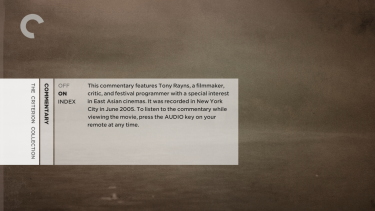 |
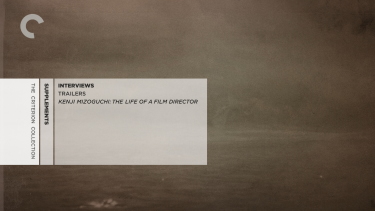 |
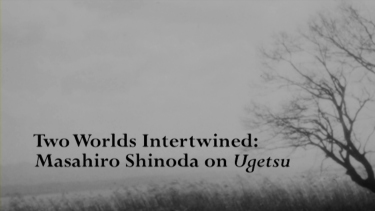 |
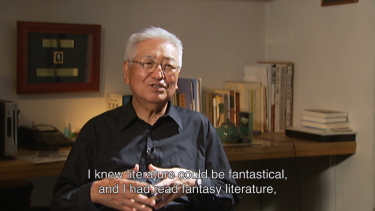 |
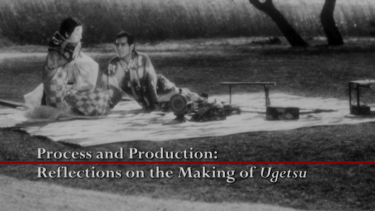 |
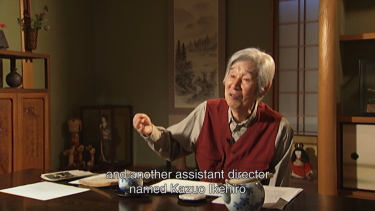 |
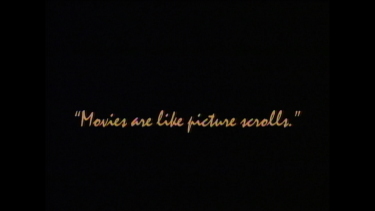 |
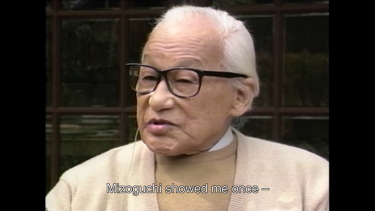 |
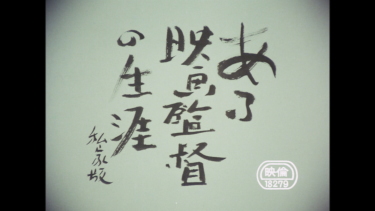 |
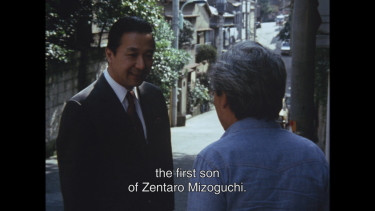 |
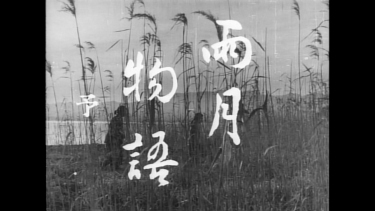 |
Criterion Spine #309 - Region FREE - 4K UHD
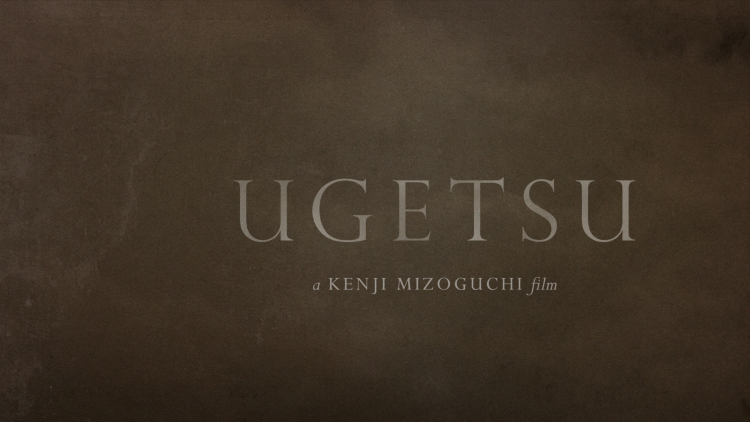 |
CLICK EACH BLU-RAY and 4K UHD CAPTURE TO SEE IN FULL RESOLUTION
Subtitle Samples
|
1) Bo Ying - Region 0 - PAL TOP 2) Masters of Cinema - Region 2- NTSC SECOND 3) Criterion - Region 1 - NTSC - THIRD 4) Masters of Cinema - Region 'B' Blu-ray FOURTH 5) Criterion - Region 'A' Blu-ray FIFTH 6) Criterion Spine #309 - Region FREE - 4K UHD BOTTOM |
NOTE: Not exact frame
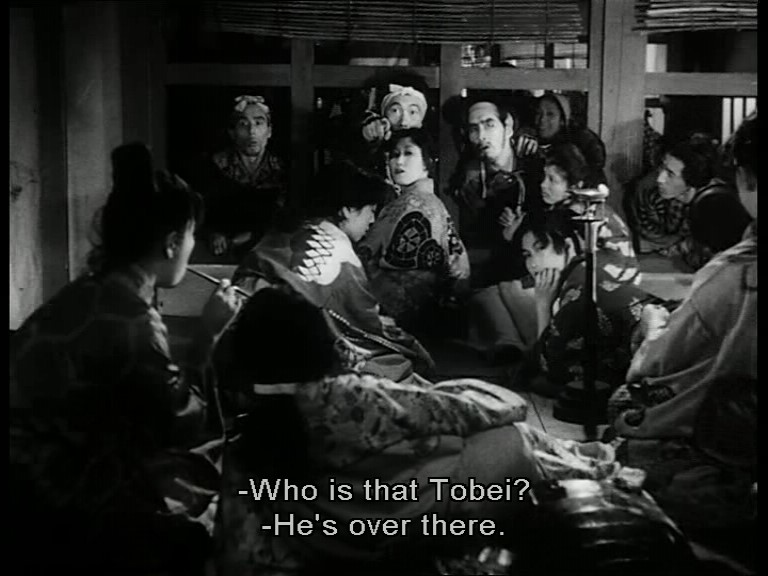 |
|
|
|
|
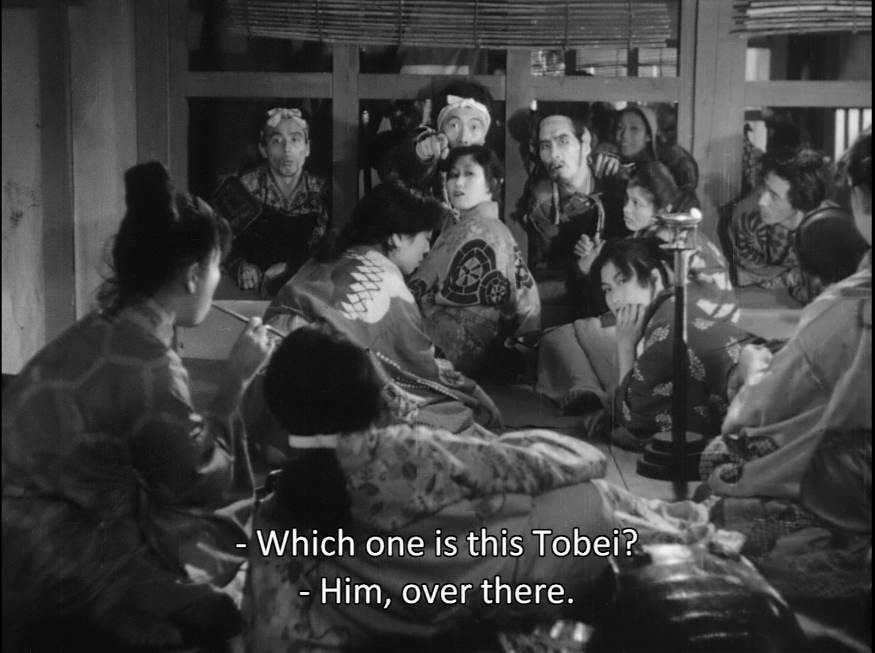 |
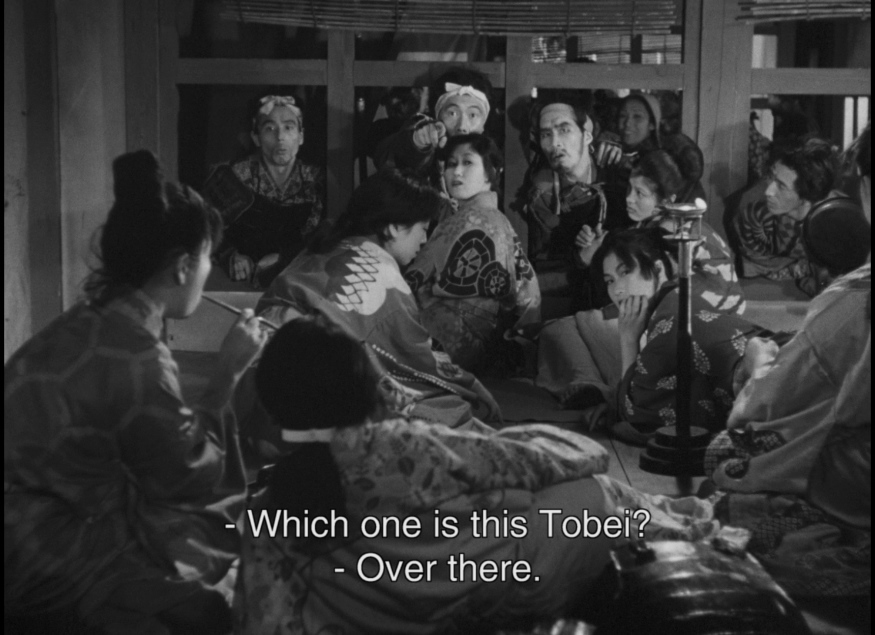 |
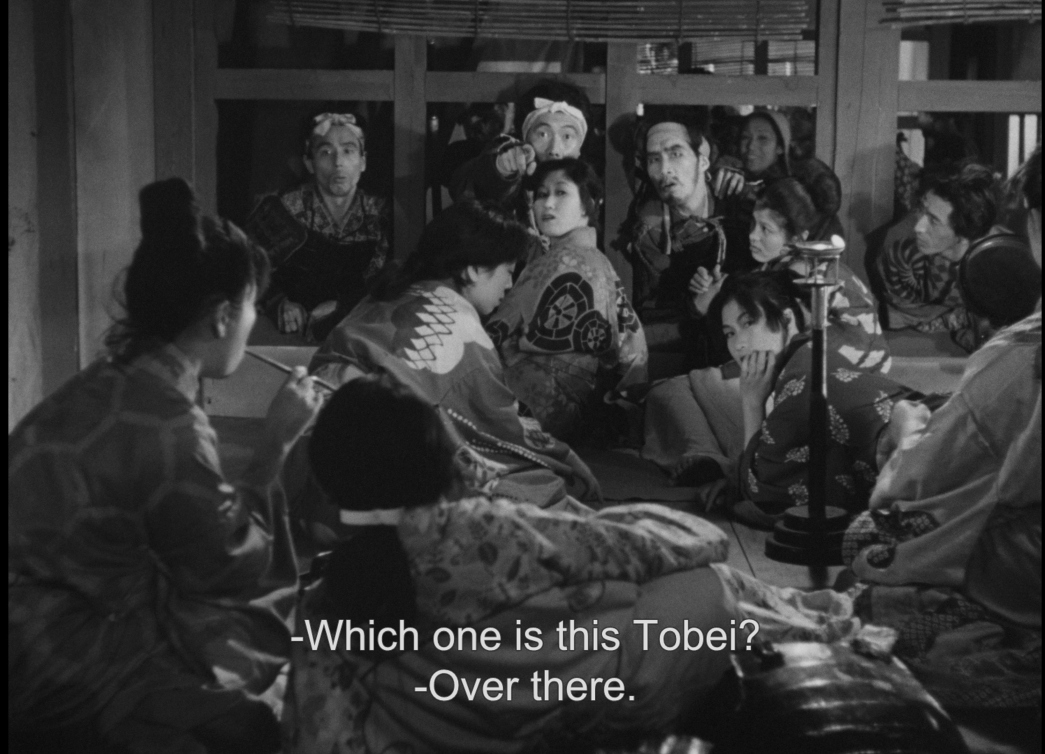 |
Screen Captures
|
1) Bo Ying - Region 0 - PAL TOP 2) Masters of Cinema - Region 2- NTSC SECOND 3) Criterion - Region 1 - NTSC - THIRD 4) Masters of Cinema - Region 'B' Blu-ray FOURTH 5) Criterion - Region 'A' Blu-ray FIFTH 6) Criterion Spine #309 - Region FREE - 4K UHD BOTTOM |
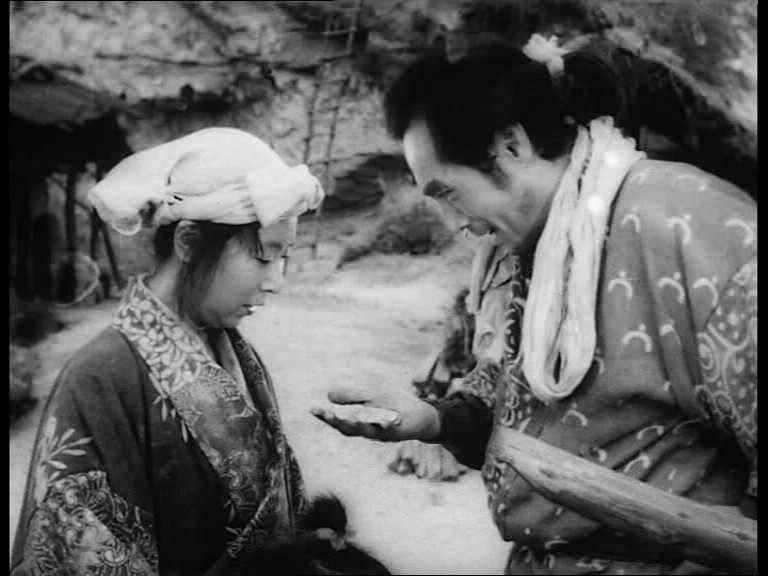 |
|
|
|
|
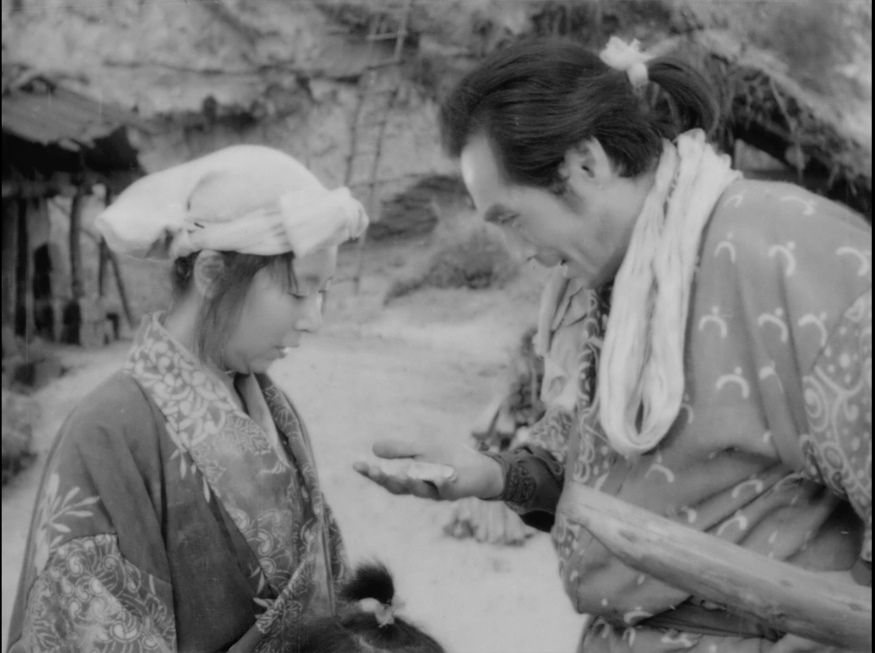 |
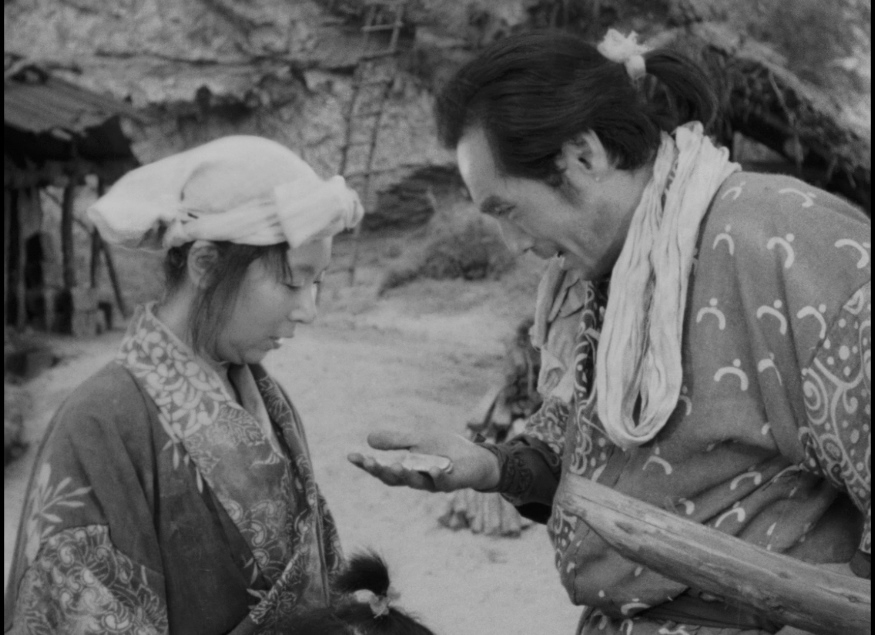 |
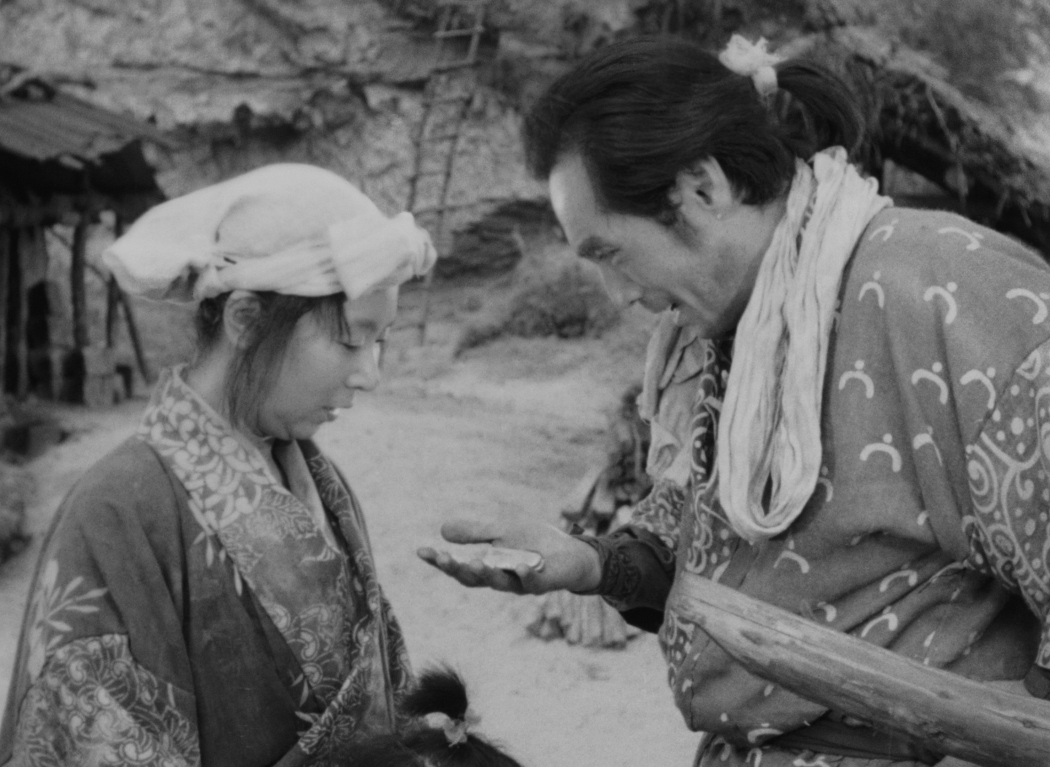 |
|
1) Bo Ying - Region 0 - PAL TOP 2) Masters of Cinema - Region 2- NTSC SECOND 3) Criterion - Region 1 - NTSC - THIRD 4) Masters of Cinema - Region 'B' Blu-ray FOURTH 5) Criterion - Region 'A' Blu-ray FIFTH 6) Criterion Spine #309 - Region FREE - 4K UHD BOTTOM |
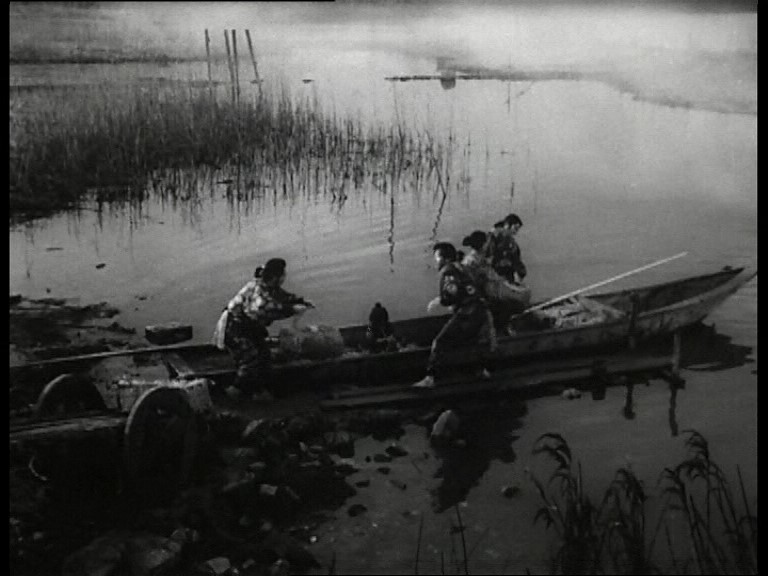 |
|
|
|
|
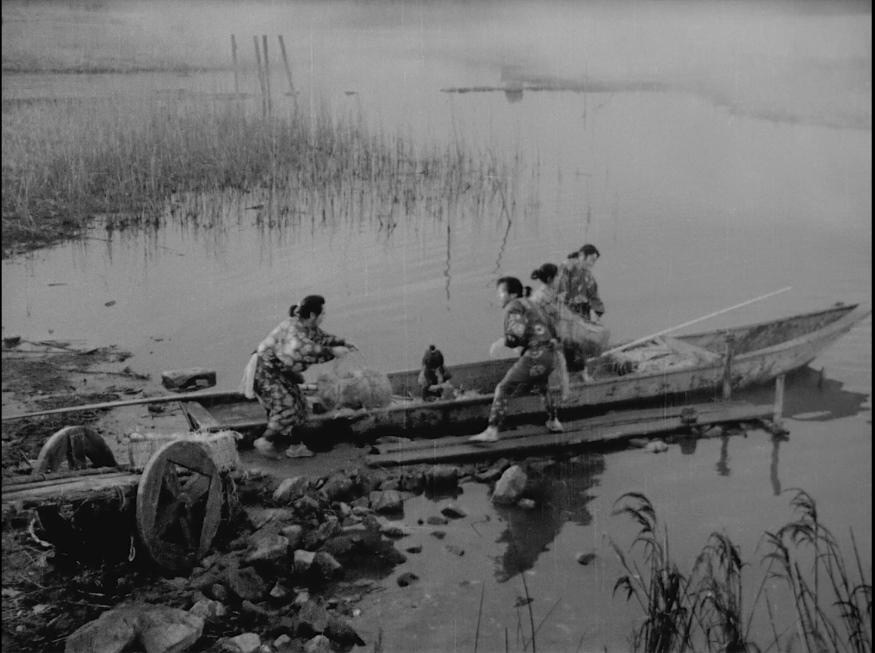 |
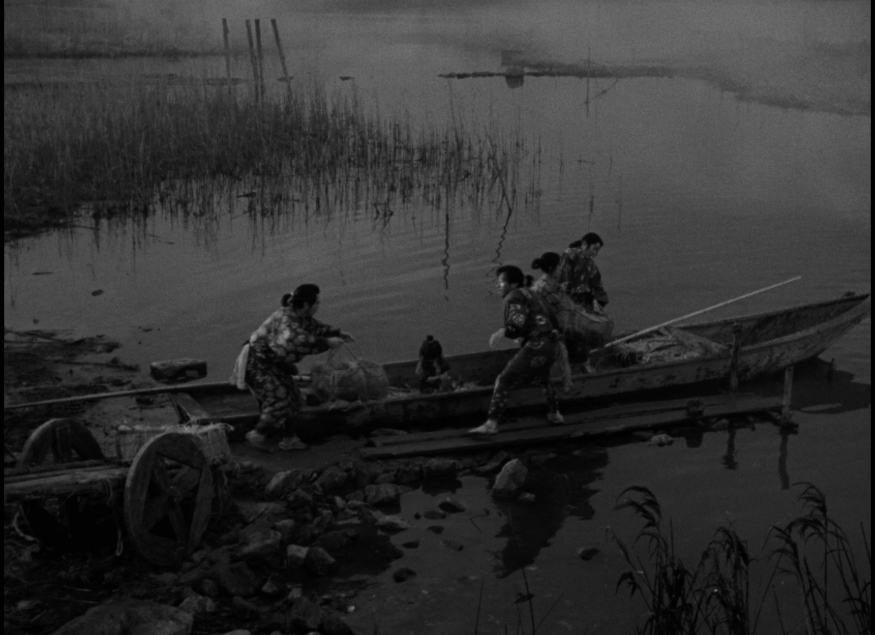 |
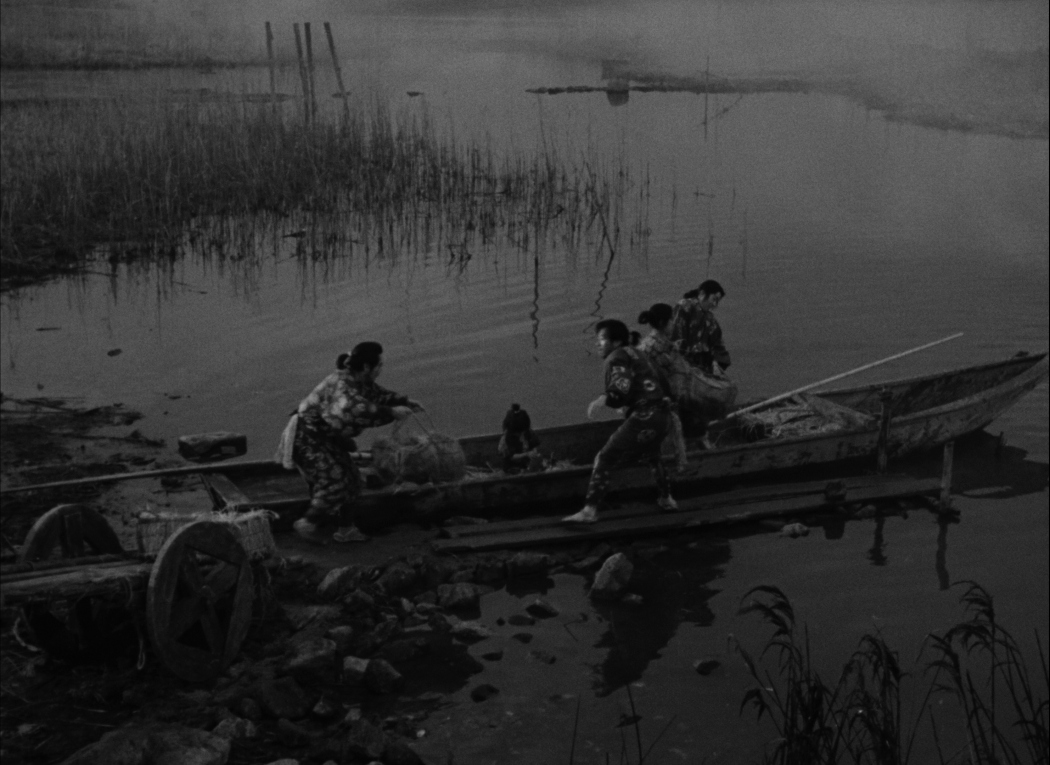 |
|
1) Bo Ying - Region 0 - PAL TOP 2) Masters of Cinema - Region 2- NTSC SECOND 3) Criterion - Region 1 - NTSC - THIRD 4) Masters of Cinema - Region 'B' Blu-ray FOURTH 5) Criterion - Region 'A' Blu-ray FIFTH 6) Criterion Spine #309 - Region FREE - 4K UHD BOTTOM |
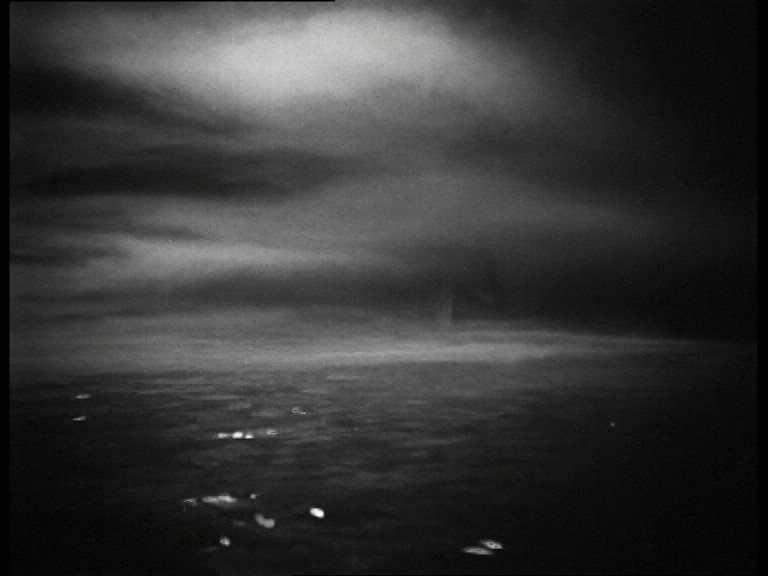 |
|
|
|
|
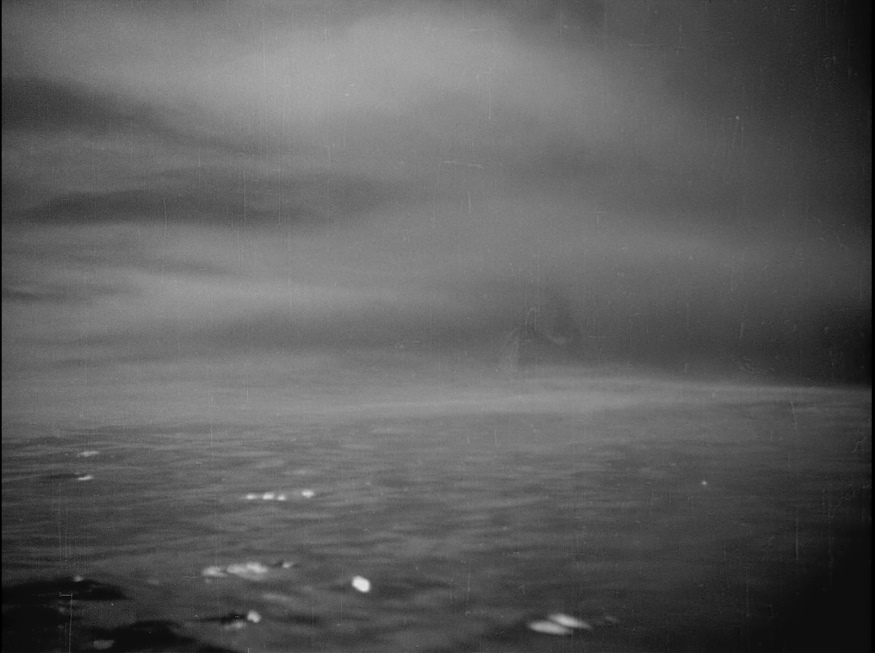 |
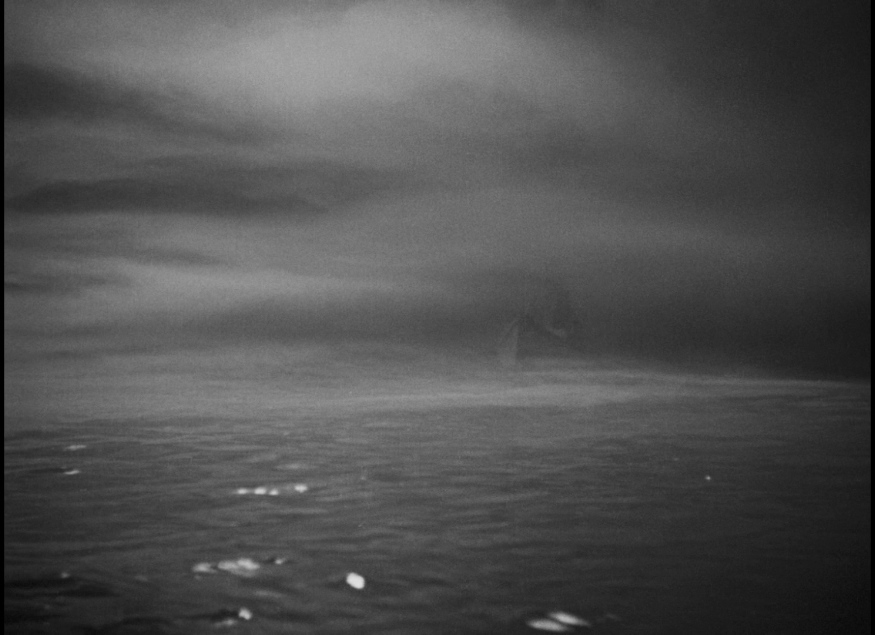 |
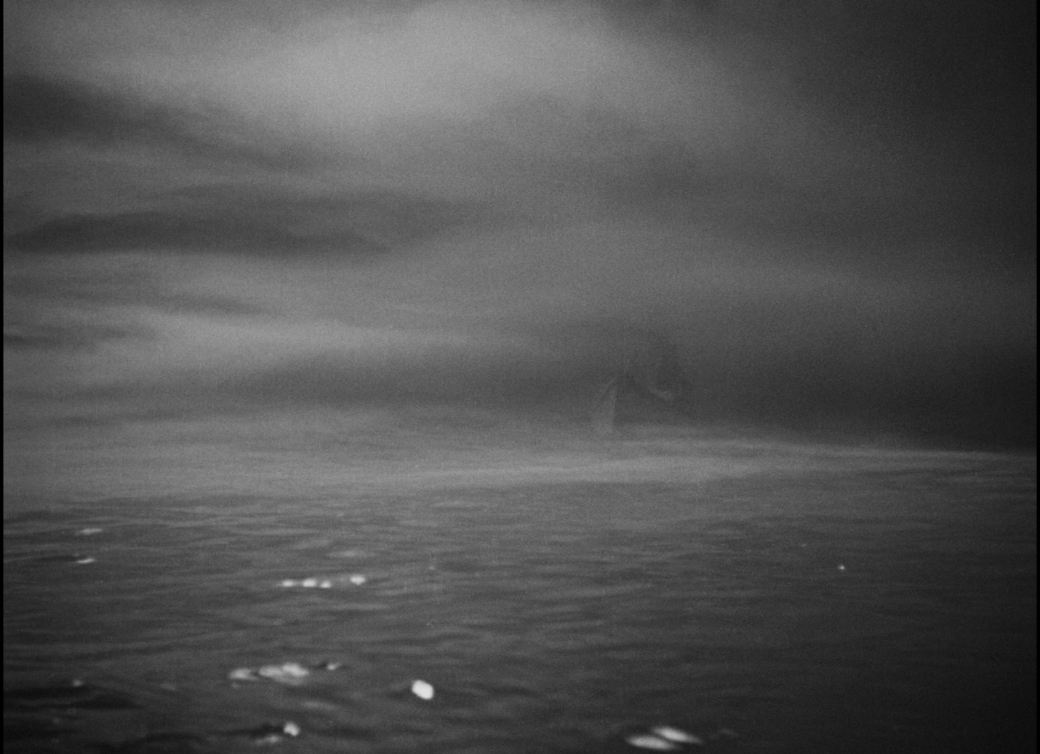 |
|
1) Bo Ying - Region 0 - PAL TOP 2) Masters of Cinema - Region 2- NTSC SECOND 3) Criterion - Region 1 - NTSC - THIRD 4) Masters of Cinema - Region 'B' Blu-ray FOURTH 5) Criterion - Region 'A' Blu-ray FIFTH 6) Criterion Spine #309 - Region FREE - 4K UHD BOTTOM |
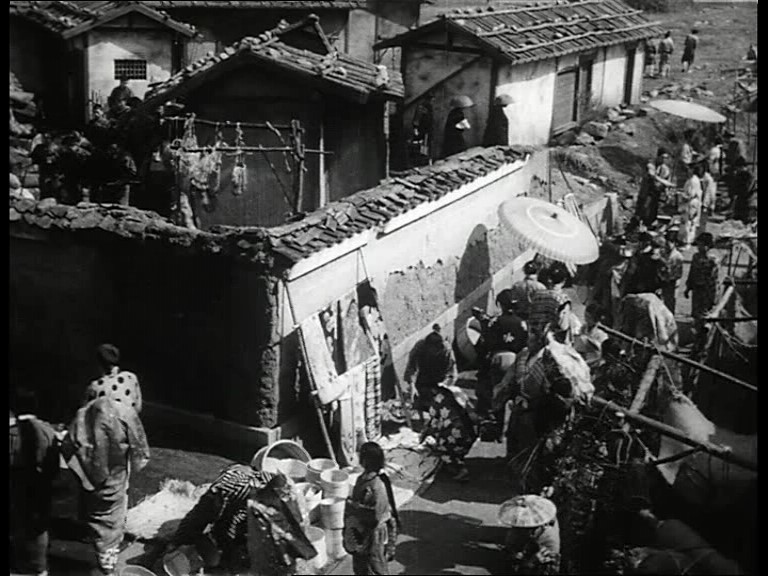 |
|
|
|
|
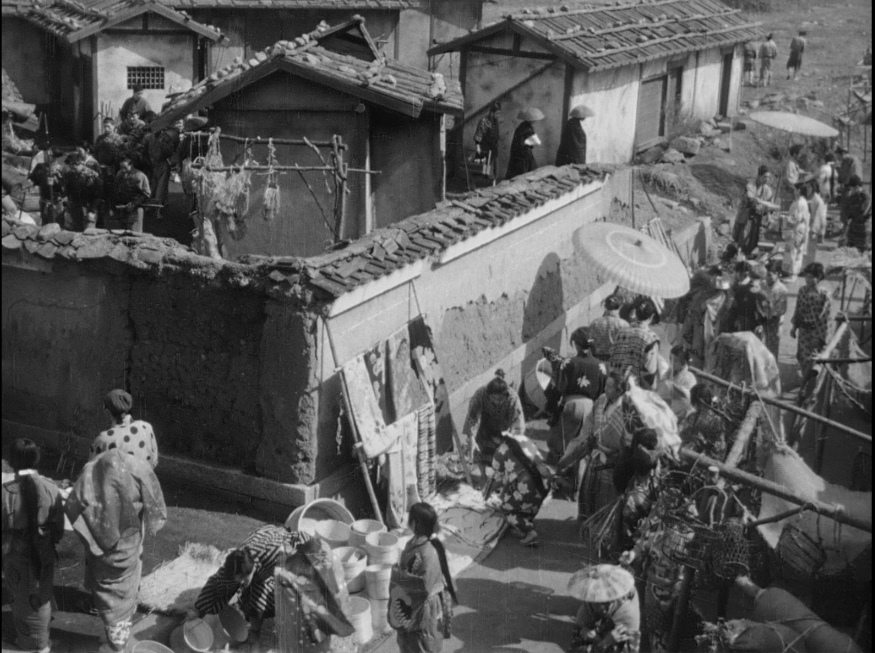 |
 |
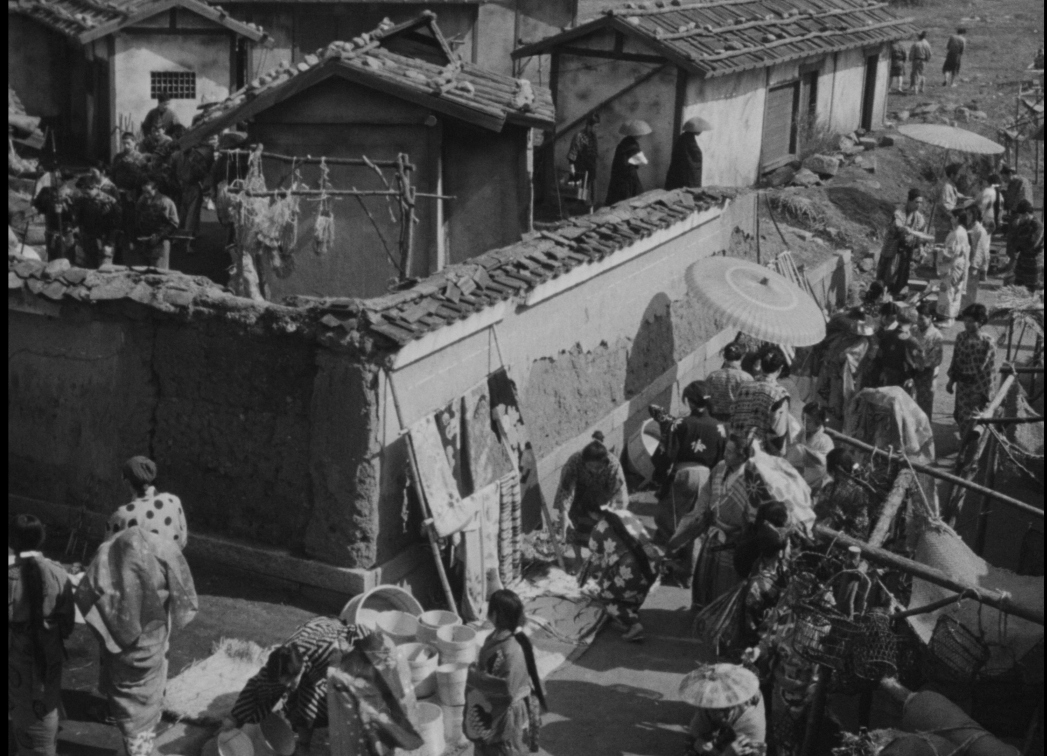 |
|
1) Bo Ying - Region 0 - PAL TOP 2) Masters of Cinema - Region 2- NTSC SECOND 3) Criterion - Region 1 - NTSC - THIRD 4) Masters of Cinema - Region 'B' Blu-ray FOURTH 5) Criterion - Region 'A' Blu-ray FIFTH 6) Criterion Spine #309 - Region FREE - 4K UHD BOTTOM |
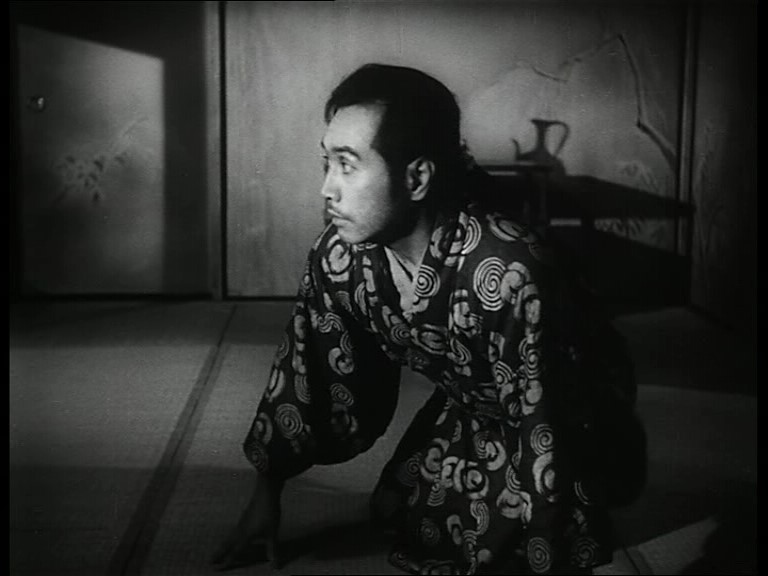 |
|
|
|
|
|
1) Bo Ying - Region 0 - PAL TOP 2) Masters of Cinema - Region 2- NTSC SECOND 3) Criterion - Region 1 - NTSC - THIRD 4) Masters of Cinema - Region 'B' Blu-ray FOURTH 5) Criterion - Region 'A' Blu-ray FIFTH 6) Criterion Spine #309 - Region FREE - 4K UHD BOTTOM |
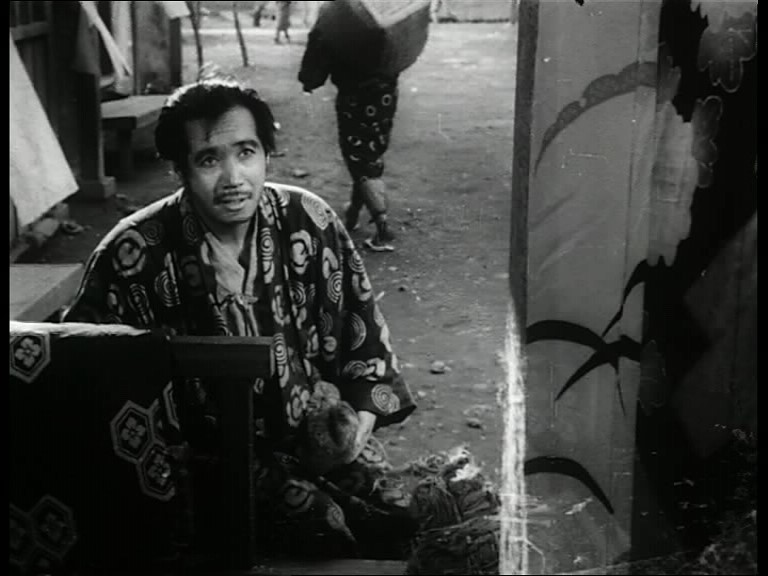 |
|
|
|
|
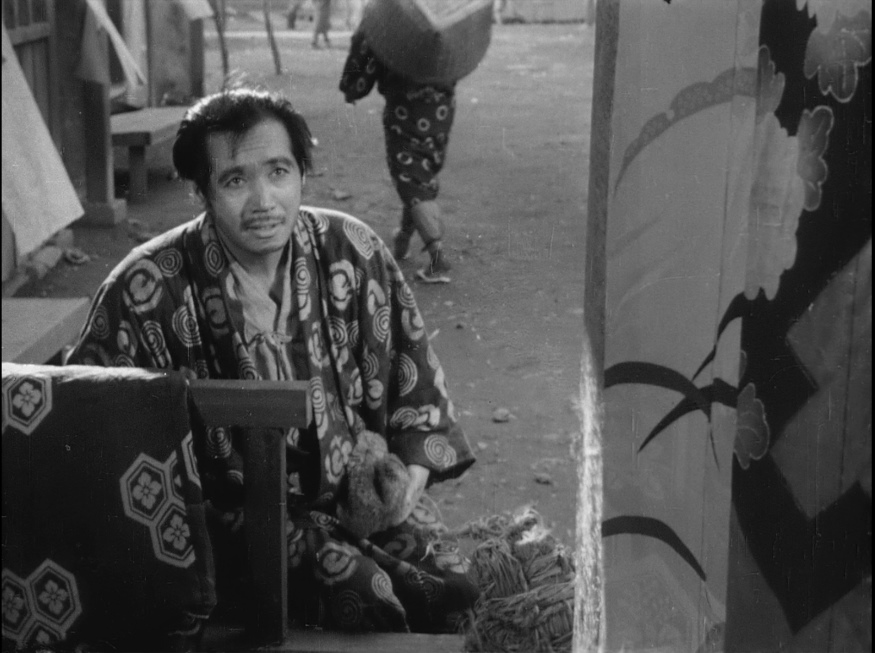 |
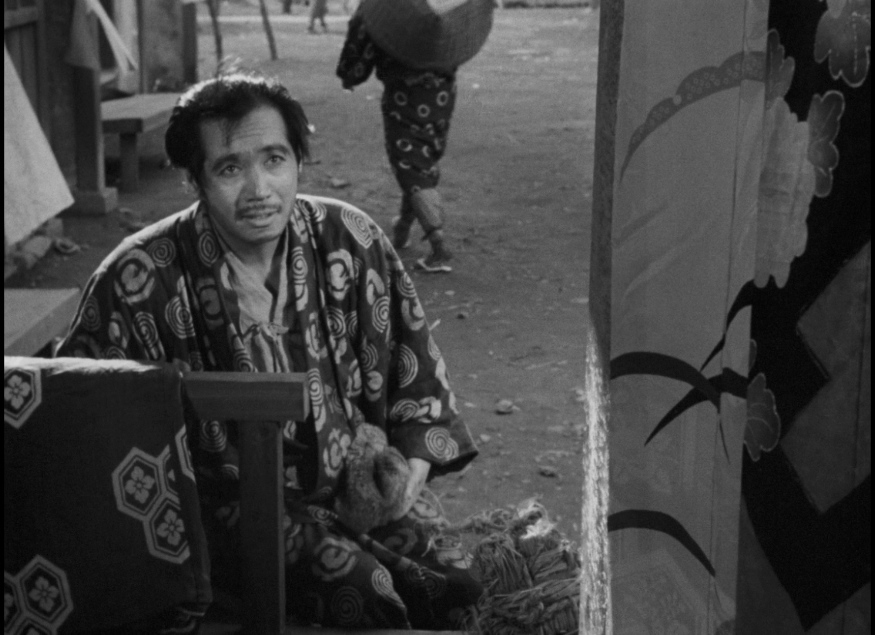 |
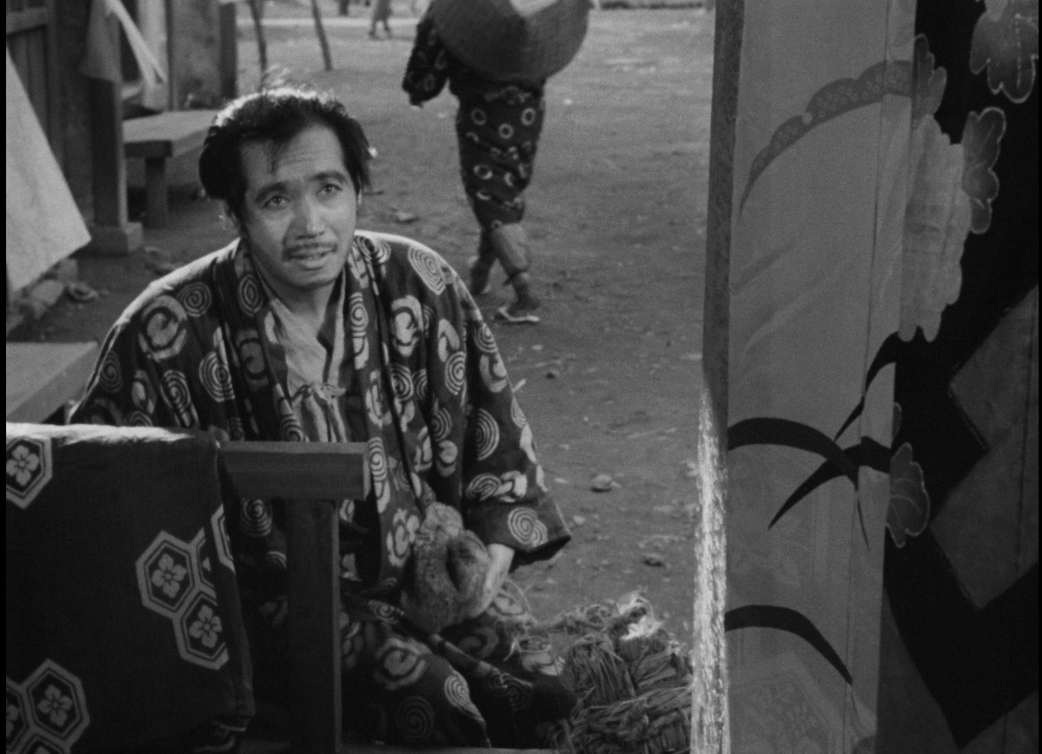 |
|
1) Bo Ying - Region 0 - PAL TOP 2) Masters of Cinema - Region 2- NTSC SECOND 3) Criterion - Region 1 - NTSC - THIRD 4) Masters of Cinema - Region 'B' Blu-ray FOURTH 5) Criterion - Region 'A' Blu-ray FIFTH 6) Criterion Spine #309 - Region FREE - 4K UHD BOTTOM |
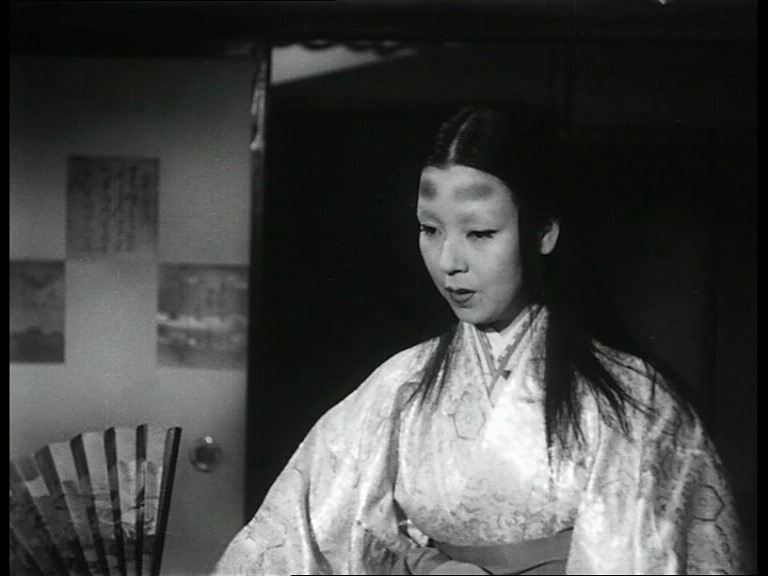 |
|
|
|
|
(aka 'Oyû-sama' or 'Lady Ôyu' or 'Miss Oyu')
directed by Kenji
Mizoguchi
|
Another literary adaptation –
this time of a story by one of Japan’s modern literary masters, novelist
Tanizaki Jun’ichiro – Mizoguchi’s Oyu-sama [Miss Oyu] is a poignant and
contemplative tale of two sisters and their ill-fated relationship with the
same man. At the core is Mizoguchi-regular Tanaka Kinuyo (who also stars in
Ugetsu Monogatari) as the eponymous Oyu, the older sister who allows marital
customs to dictate the lives of those caught up in this complex love
triangle. |
Poster
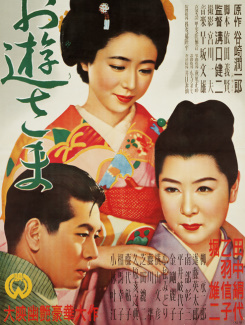 |
|
1) Masters of Cinema - Region 2- NTSC TOP 2) Masters of Cinema - Region 'B' Blu-ray BOTTOM |
|
|
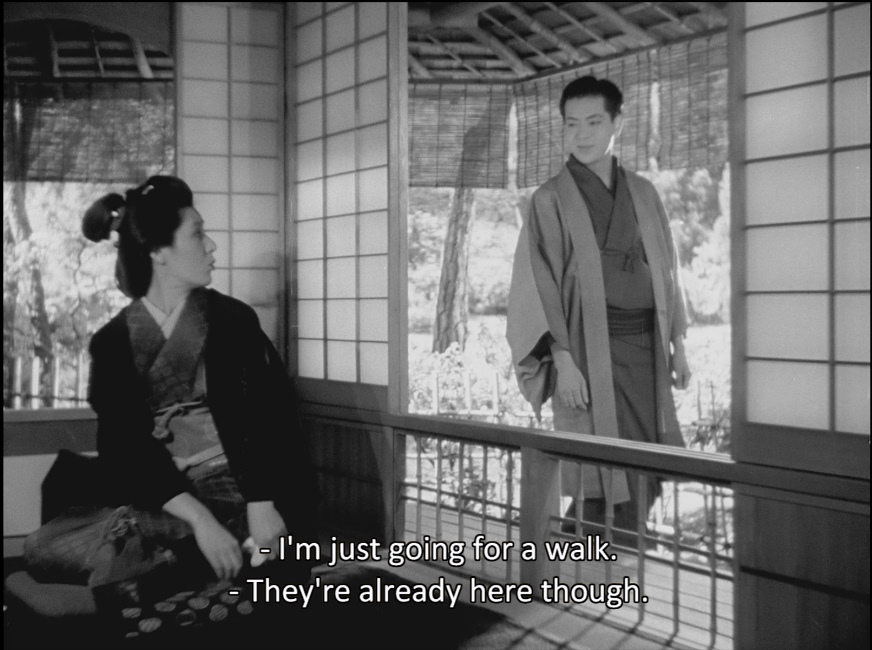 |
|
1) Masters of Cinema - Region 2- NTSC TOP 2) Masters of Cinema - Region 'B' Blu-ray BOTTOM |
|
|
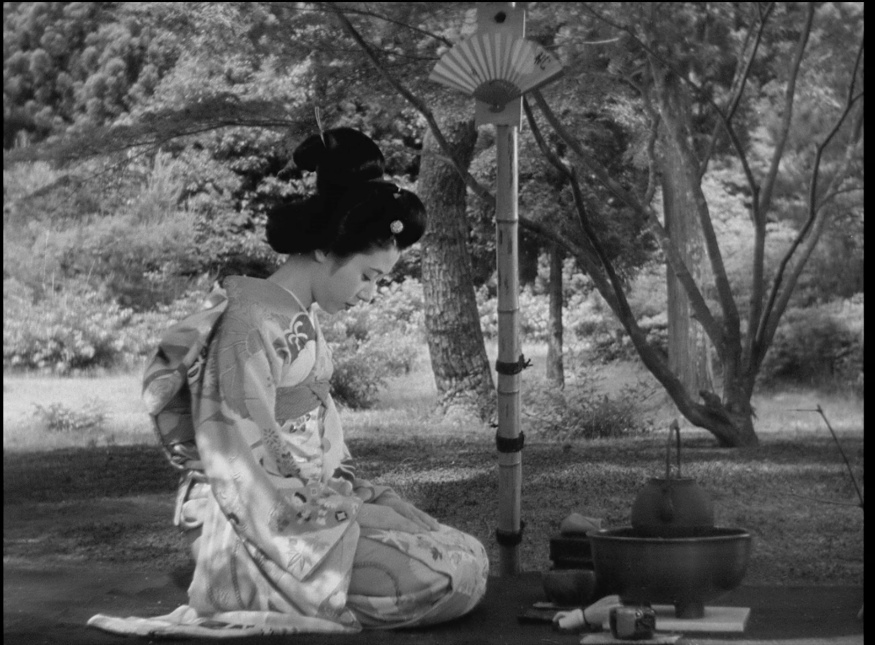 |
|
1) Masters of Cinema - Region 2- NTSC TOP 2) Masters of Cinema - Region 'B' Blu-ray BOTTOM
|
|
|
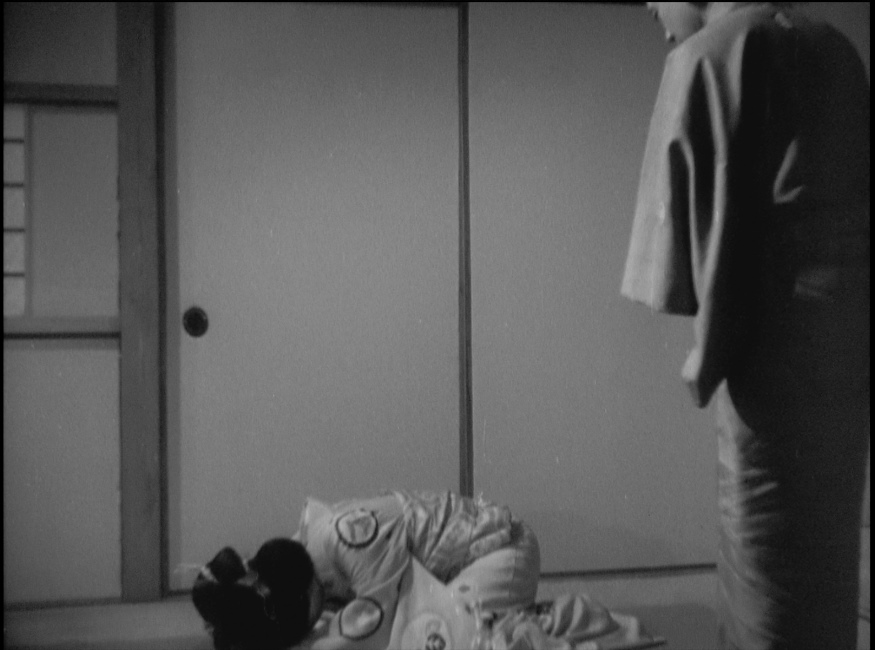 |
|
1) Masters of Cinema - Region 2- NTSC TOP 2) Masters of Cinema - Region 'B' Blu-ray BOTTOM
|
|
|
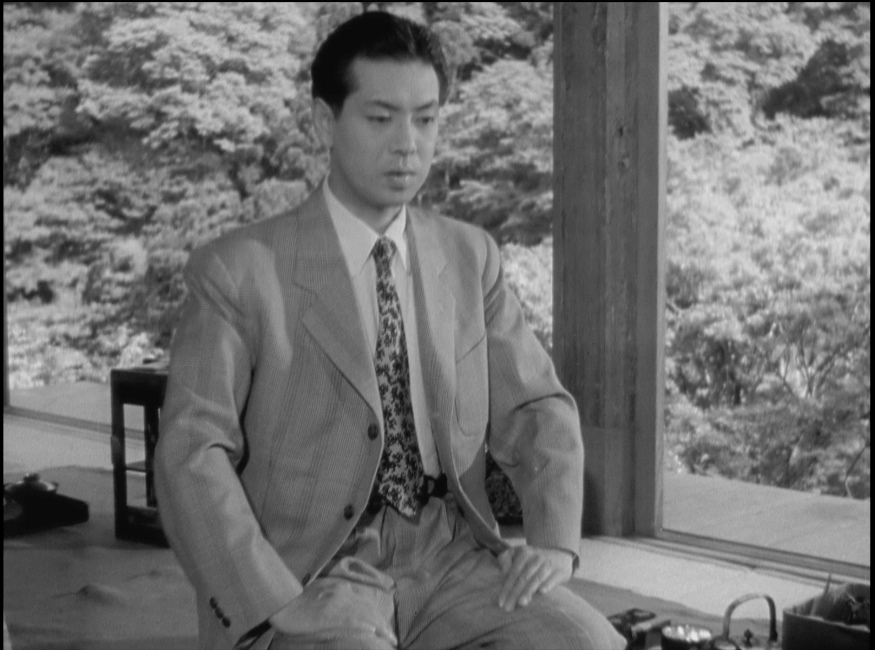 |
Report Card:
|
Image: |
4K UHD |
|
Sound: |
4K UHD / Blu-ray |
| Extras: | Criterions |
| Box Cover |
|
 |
|
 |
Criterion are releasing this Blu-ray in the UK in March 2019: |

BONUS CAPTURES: |
| Distribution | Bo Ying - Region 0 - PAL |
Eureka (Masters of Cinema) Spine # 52/53 - Region 2 - NTSC |
Criterion Collection - Spine # 309 Region 1 - NTSC |
Eureka (Masters of Cinema) Spine # 36 - Region 'B' - Blu-ray | Criterion Region 'A' - Blu-ray Spine #309 | Criterion Spine #309 - Region FREE - 4K UHD |
|
(click titles for DVDBeaver reviews) Criterion (without any extras) also available in The Essential Art House - 50 Years of Janus Films - a 50-disc celebration of international films collected under the auspices of the groundbreaking theatrical distributor. It contains Alexander Nevsky (1938), Ashes And Diamonds (1958), L'avventura (1960), Ballad Of A Soldier (1959), Beauty And The Beast (1946), Black Orpheus (1959), Brief Encounter (1945), The Fallen Idol (1948), Fires On The Plain (1959), Fists In The Pocket (1965), Floating Weeds (1959), Forbidden Games (1952), The 400 Blows (1959), Grand Illusion (1937), Häxan (1922), Ikiru (1952), The Importance Of Being Earnest (1952), Ivan The Terrible, Part II (1958), Le Jour Se Lève (1939), Jules And Jim (1962), Kind Hearts And Coronets (1949), Knife In The Water (1962), The Lady Vanishes (1938), The Life And Death Of Colonel Blimp (1943), Loves Of A Blonde (1965), M (1931), M. Hulot's Holiday (1953), Miss Julie (1951), Pandora's Box (1929), Pépé Le Moko (1937), Il Posto (1961), Pygmalion (1938), Rashomon (1950), Richard III (1955), The Rules Of The Game (1939), Seven Samurai (1954), The Seventh Seal (1957), The Spirit Of The Beehive (1973), La Strada (1954), Summertime (1955), The Third Man (1949), The 39 Steps (1935), Ugetsu (1953), Umberto D. (1952), The Virgin Spring (1960), Viridiana (1961), The Wages Of Fear (1953), The White Sheik (1952), Wild Strawberries (1957), Three Documentaries By Saul J. Turell plus the hardcover, full color 240-page book. |
||||||
![]()
![]()

![]()
![]()


